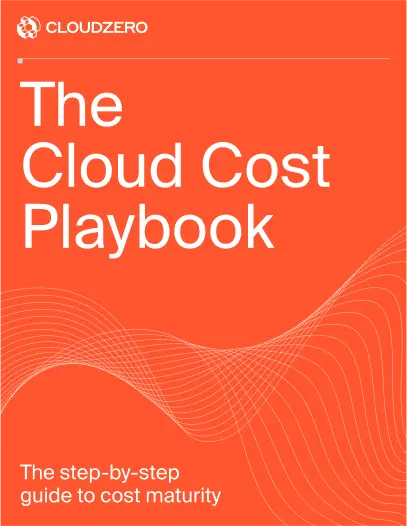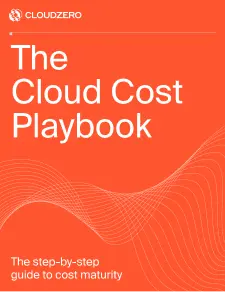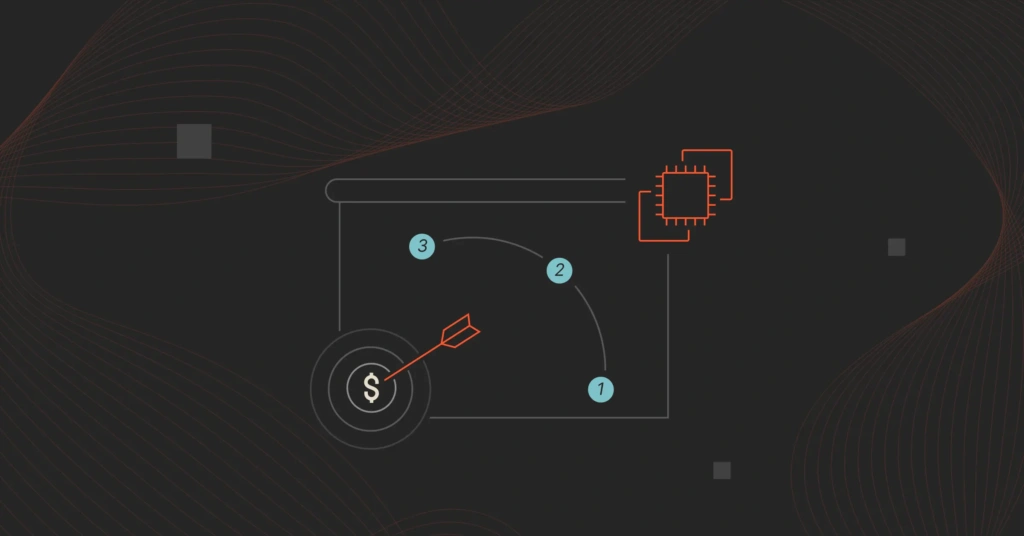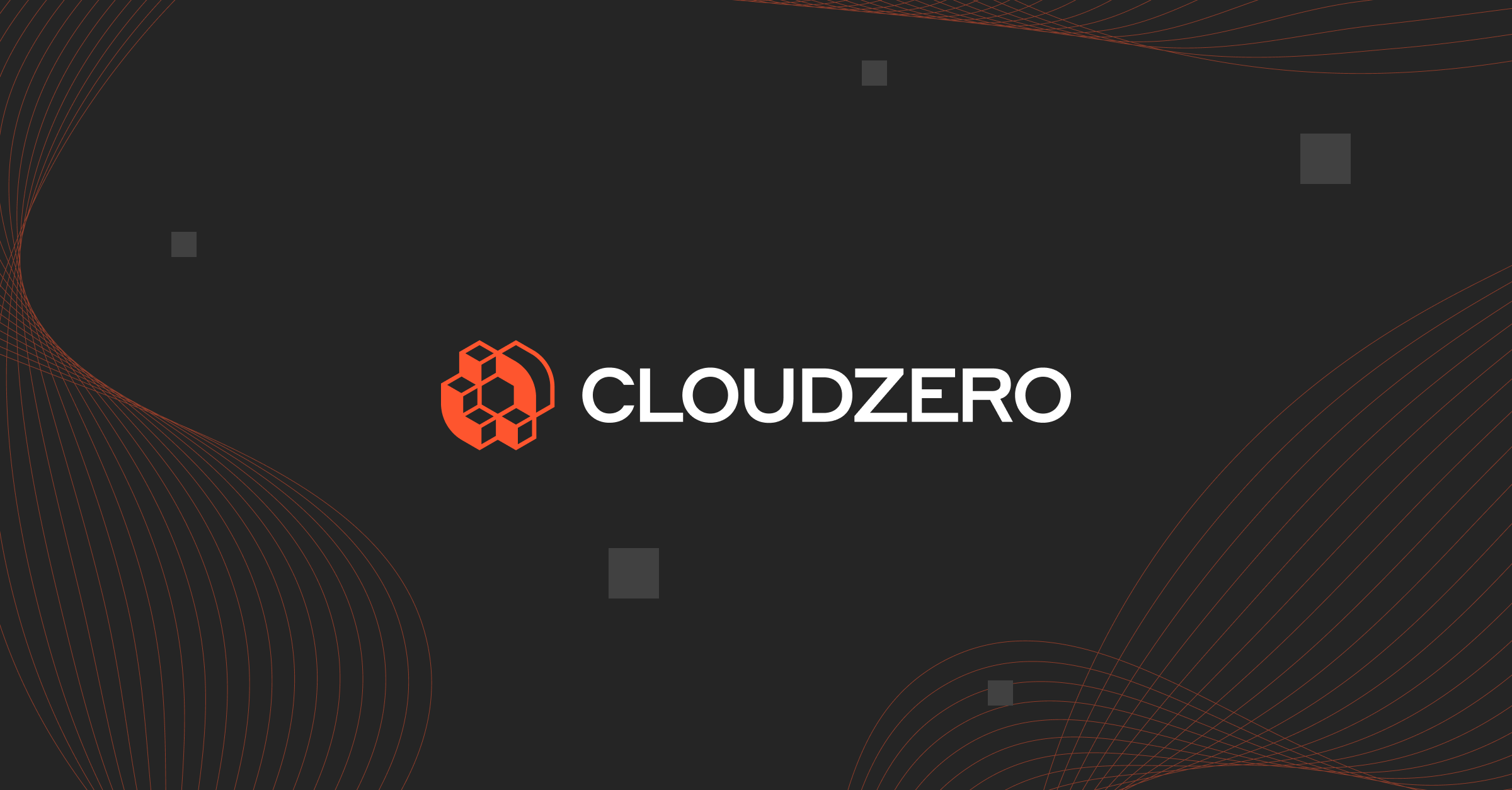Embracing the DevOps approach involves continuously improving your systems. You can only do that by continuously improving your knowledge and experience of this ever-evolving development and operations model.
Also, as organizations seek indispensable DevOps expertise, you’d do well to sharpen your skills continually.
Whether you’re a CTO or a junior developer, a systems administrator, or just joining a new company, we’ve compiled this list of must-read DevOps books for you. The books cover several important categories, including:
Introduction To DevOps Books
These DevOps books will help you better understand DevOps, why it matters, and how to get started.
1. Beyond the Phoenix Project: The Origins and Evolution of DevOps
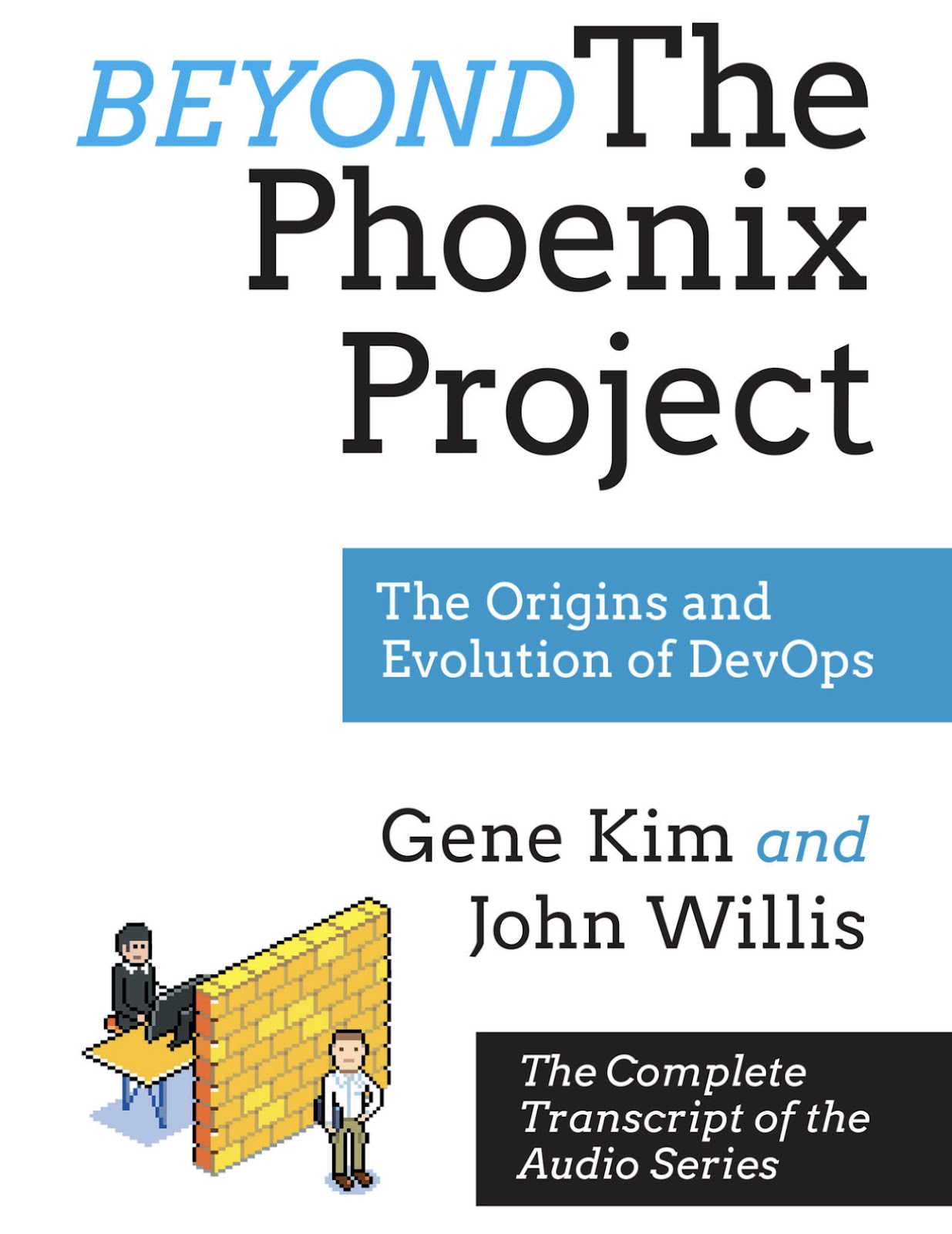
Authors: Gene Kim and John Willis
Year: February 2018
Gene Kim, an award-winning CTO and researcher, and John Willis, an evangelist at Docker Inc., share their foundational knowledge of DevOps here.
In Beyond the Phoenix Project, you can read about the pivotal figures, philosophies, and Learning Organization concepts that differentiate the DevOps approach from other IT methodologies.
2. The DevOps Handbook: How to Create World-Class Agility, Reliability, and Security in Technology Organizations
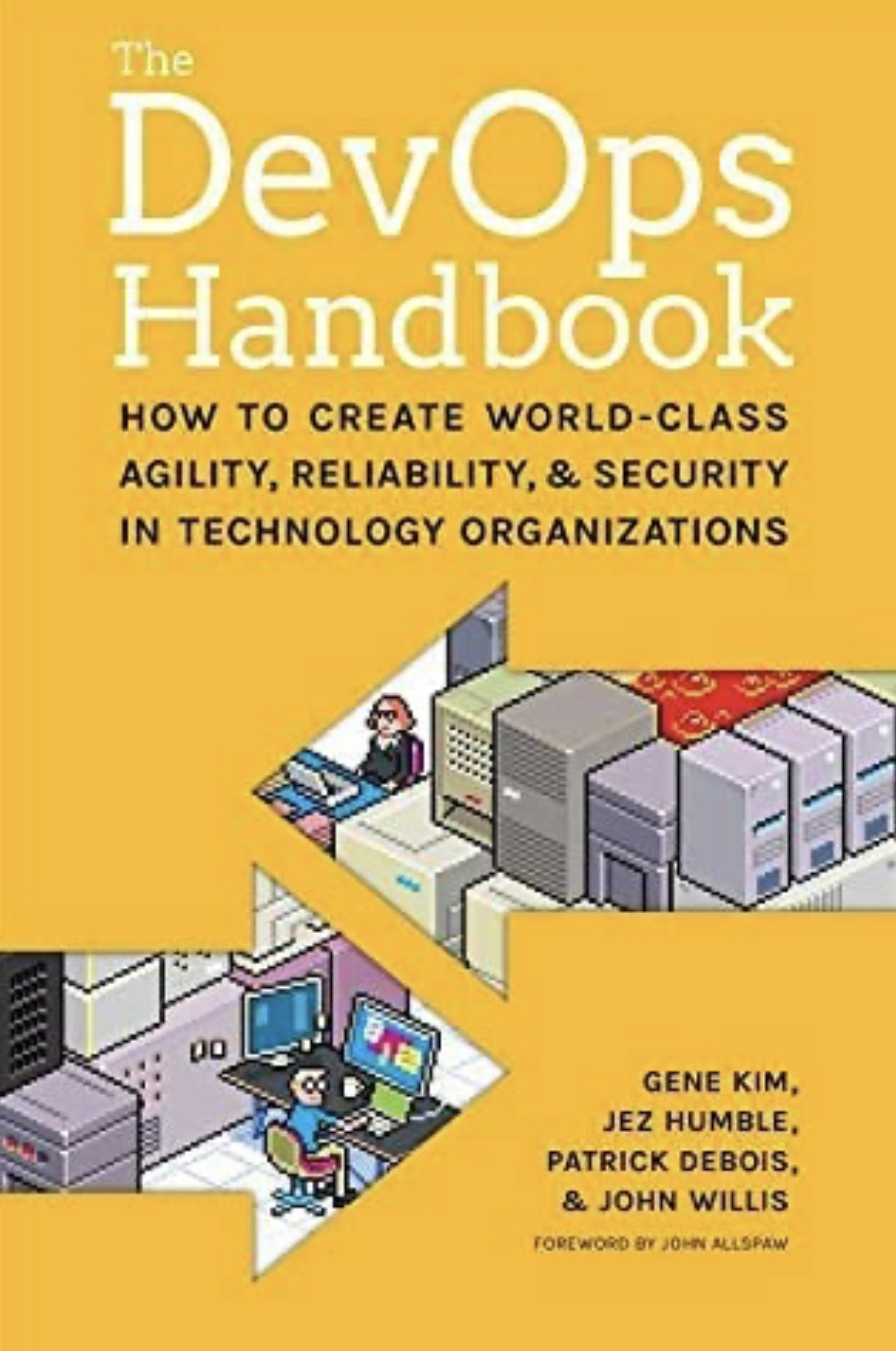
Authors: Gene Kim, Jez Humble, Patrick Debios, and John Willis
Year: November 2021
This influential must-read is ideal for everyone in DevOps, from developers and operations teams to IT managers and platform owners.
In this new edition, you’ll learn about 15 case studies of companies that have realized the benefits of DevOps (including Adidas, Fannie Mae, and the US Air Force) and best practices to help you implement it in your organization.
You’ll learn about rapid feedback and flow, DevOps KPIs and metrics to measure, value stream mapping, and understanding your CI/CD pipeline.
3. The Phoenix Project: A Novel About IT, DevOps, and Helping Your Business Win
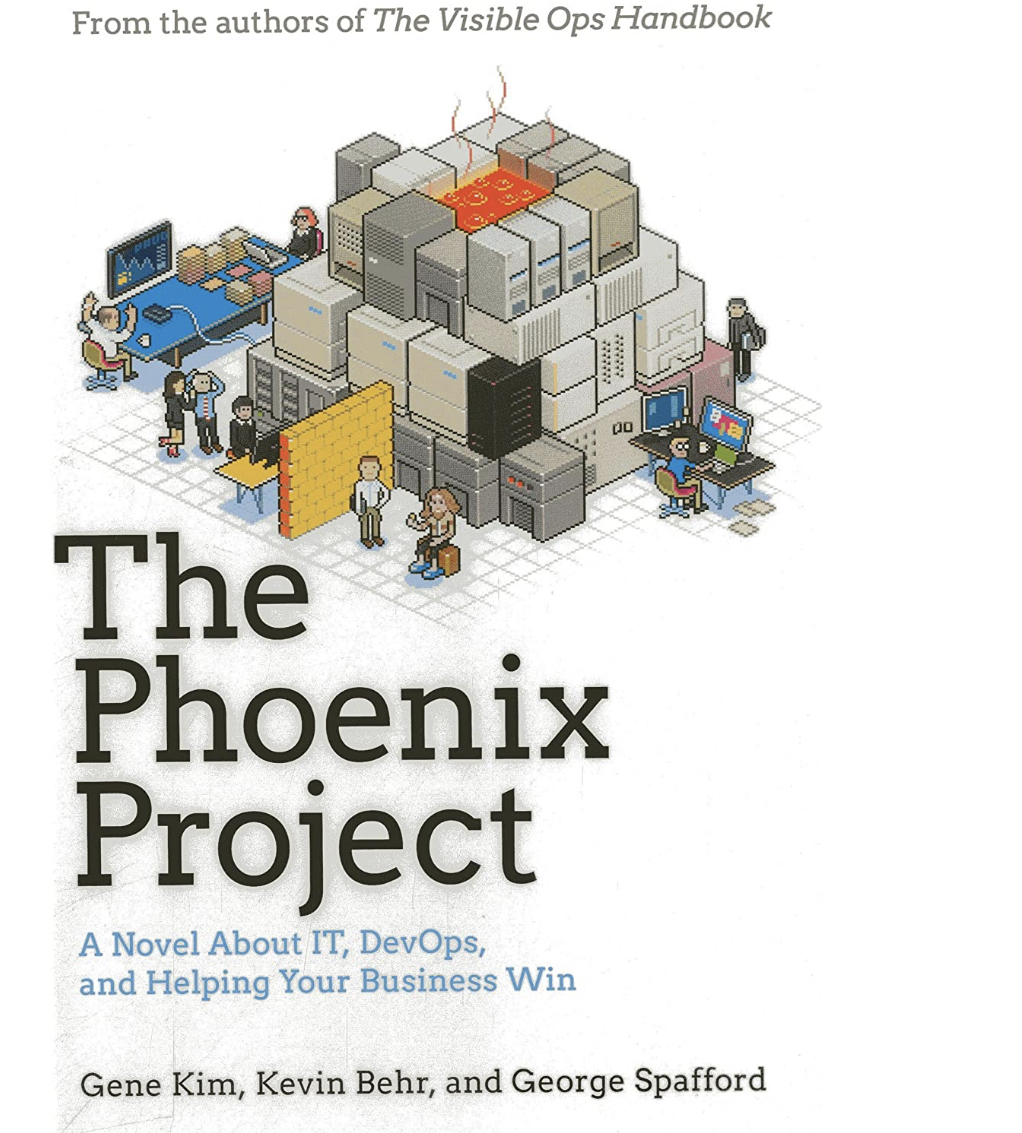
Authors: Gene Kim, Kevin Behr, and George Spafford
Year: January 2013
This classic takes an unconventional story approach to explore the core principles of DevOps and how they look and work in real life. The story follows Bill, VP of IT at Parts Unlimited.
Bill and his team are well over budget and time with their new IT initiative, the Phoenix Project — although the system remains unusable. They have 90 days to fix the mess, or their entire department will be outsourced.
During this timeline, Bill and his team present the reader with various challenges, DevOps use cases, and best practices for adopting and optimizing a DevOps culture.
4. The DevOps Adoption Playbook: A Guide to Adopting DevOps in a Multi-Speed IT Enterprise
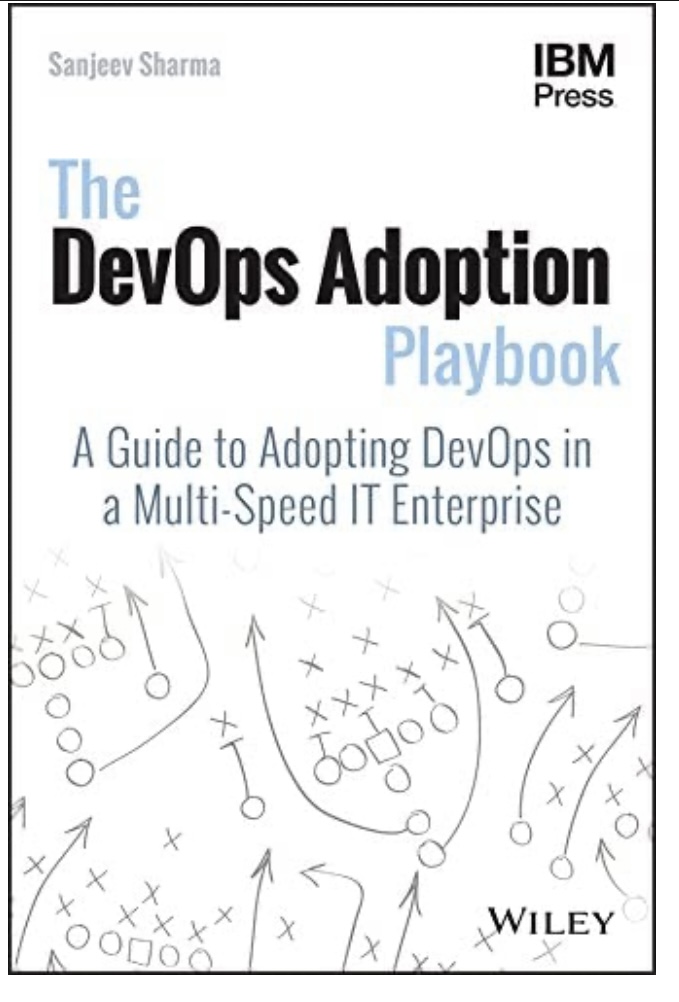
Author: Sanjeev Sharma
Year: February 2017
In this DevOps 2017 Book of the Year, you will discover how to experiment and apply DevOps best practices at the enterprise level.
Using his experience leading IBM’s DevOps practice, Sanjeev Sharma shares actionable advice. He acknowledges the risks, limitations, opportunities, and challenges of implementing DevOps in large organizations.
He then discusses cultural, tooling, organizational, and other changes you can make immediately to improve your engineering innovation velocity.
5. The Linux Command Line: A Complete Introduction
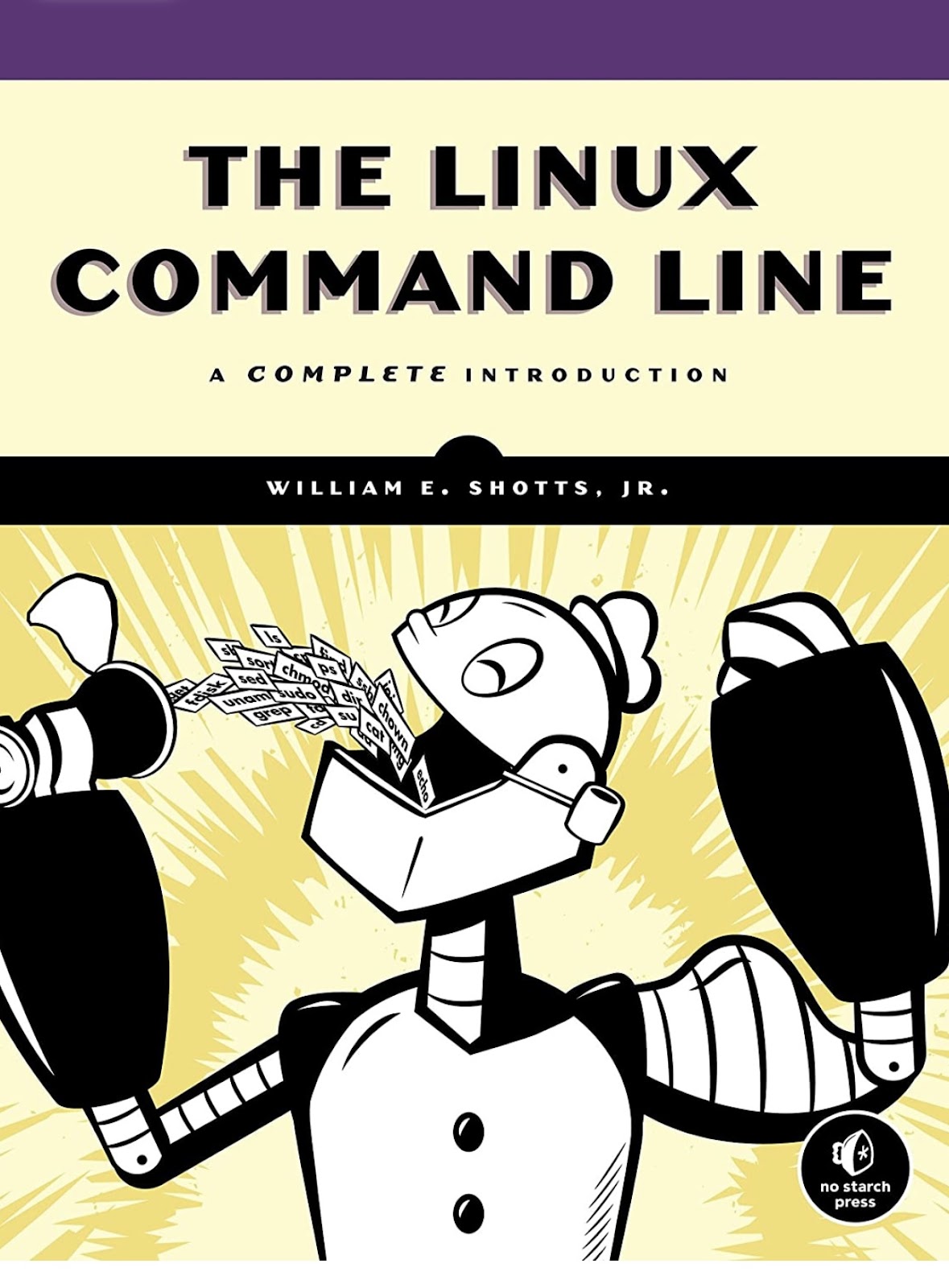
Author: William Shotts
Year: 2009 (New Edition in March 2019)
The Linux Command Line presents practical knowledge in short and sweet chapters, describing how to use the most popular operating system for DevOps engineers; Linux.
This book teaches you how to automate repetitive tasks using shell scripts, write programs in Bash, edit files with Vi, and more. It also covers creating, deleting, and cleaning directories, symlinks, and files.
Combine this read with Evi Nemeth’s UNIX and Linux System Administration Handbook (Fifth Edition).
Books On DevOps Culture
6. Measure What Matters: How Google, Bono, and the Gates Foundation Rock the World with OKRs
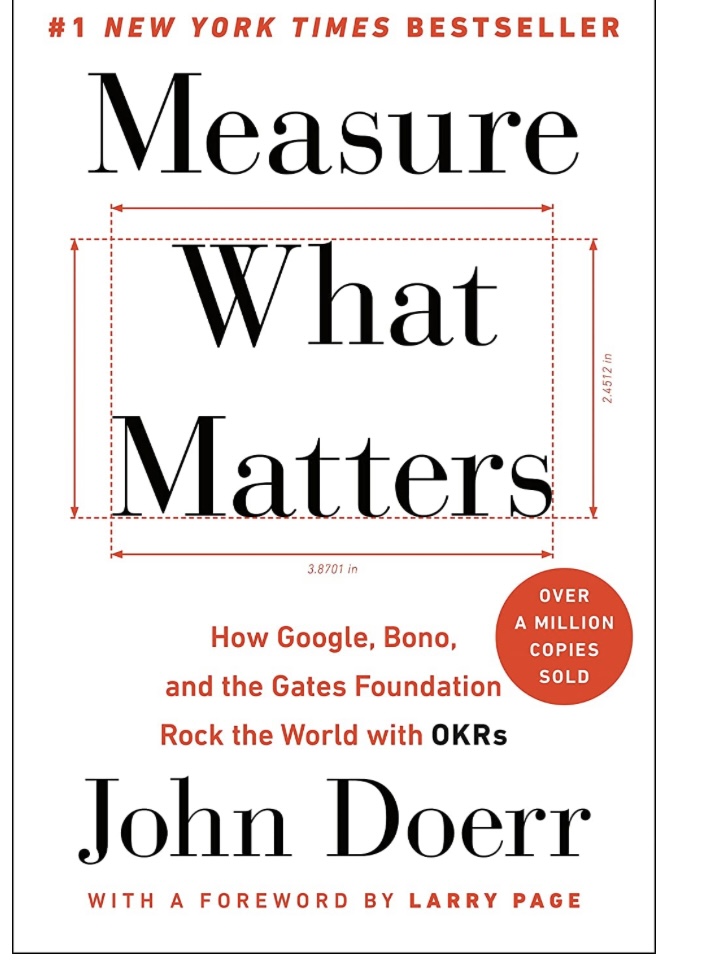
Author: John Doerr
Year: April 2018
Before he became the legendary venture capitalist he is today, John Doerr was an engineer at Intel in the 1970s. While there, he worked under the legendary Andy Grove, learning the art and science of Objectives and Key Results (OKRs).
This approach is a goal-setting system that helps companies of all sizes prioritize where to direct their resources, track progress, and fail fast within a given time frame.
The book shares case studies of how the system has worked at bleeding-edge IT companies like Google and Microsoft so you can see its practical application.
7. Turn the Ship Around: A True Story of Turning Followers into Leaders
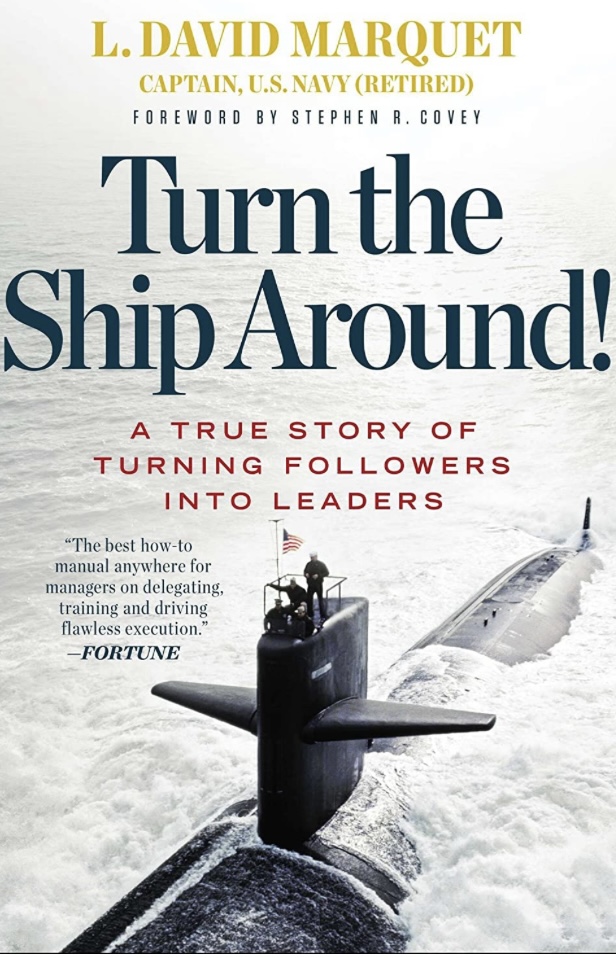
Author: L. David Marquet
Year: May 2013
A key characteristic of DevOps is its emphasis on sharing responsibilities while preventing silos from forming.
Developers and operations engineers used to work as separate teams, but DevOps encourages continuous collaboration between them, your leadership, and the software customer.
You can accomplish this by empowering your technicians to make decisions before it is too late.
Turn the Ship Around is a story-based guide to delegating, mentoring, and leading flawless operations while boosting team morale, performance, and talent retention.
8. DevOps for the Modern Enterprise: Winning Practices to Transform Legacy IT Organizations
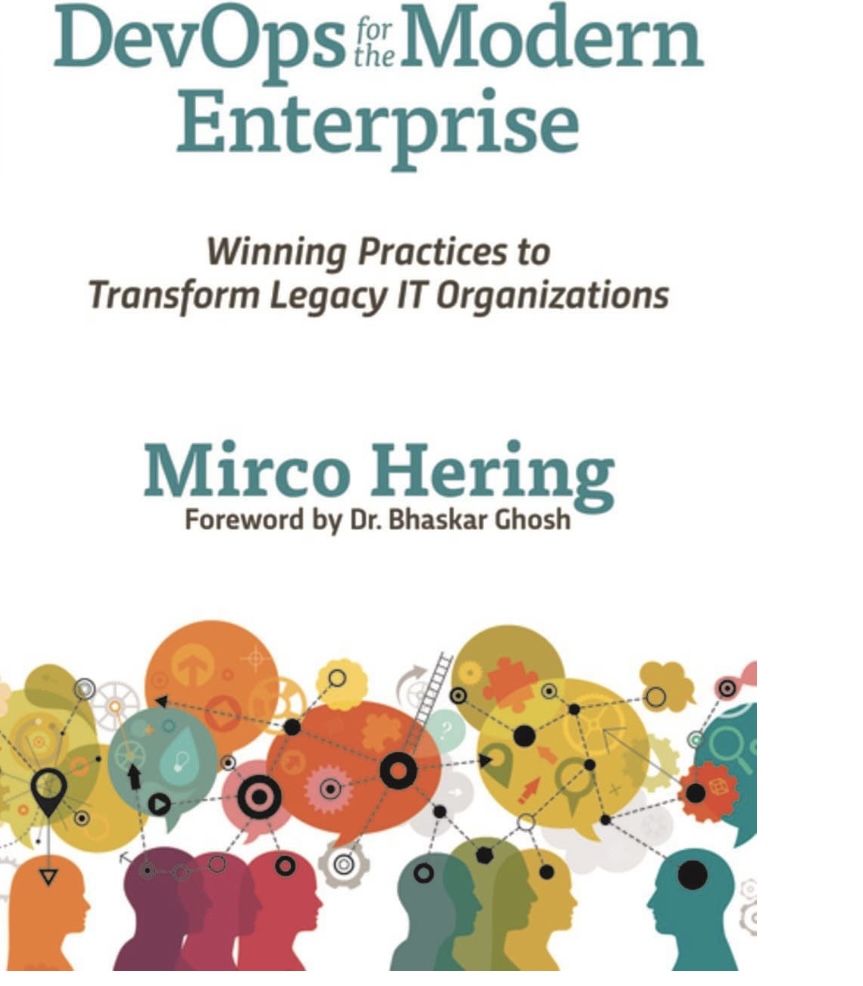
Author: Mirco Hering
Year: April 2018
While many DevOps books focus on the right tooling and methods, Mirco’s guide emphasizes the people aspect of maintaining high-performing IT systems.
He insists that cultural change is the most impactful initiative yet the toughest to implement. So, he shares practical insights on how to facilitate an enabling ecosystem for your engineers to thrive and propel your organization’s initiatives to success.
The perfect read for companies eager to transform their cultures from legacy to bleeding-edge.
9. Leading the Transformation: Applying Agile and DevOps Principles at Scale
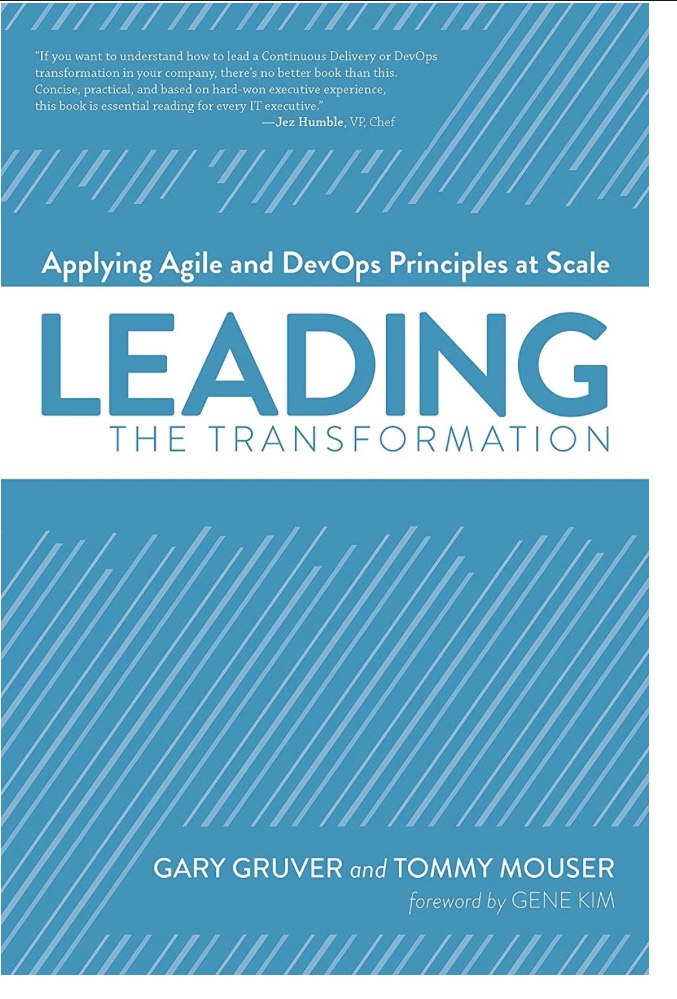
Authors: Gary Gruver and Tommy Mouser
Year: August 2015
IT leaders at large organizations often struggle with determining which changes to prioritize to inspire continuous improvement.
Leading the Transformation provides the execution plan your leadership needs to create, implement, and track the progress of your modern DevOps framework across teams and departments.
The book emphasizes how to coordinate work across various players — including the culture to support this transformation.
10. The Goal: A Process of Ongoing Improvement

Authors: Eliyahu M. Goldratt and Jeff Cox
Year: June 2014
Engineering and leaders who want to break out of traditional thinking and adopt working techniques in a rapidly changing world will find this 30th Edition of the 1984 classic compulsive reading.
Engineers will recognize real-life struggles in the thriller-style narrative and glean insights into how to turn failing initiatives into thriving operations, one day at a time.
Technical DevOps Books
11. The Unicorn Project: A Novel About Developers, Digital Disruption, and Thriving in the Age of Data
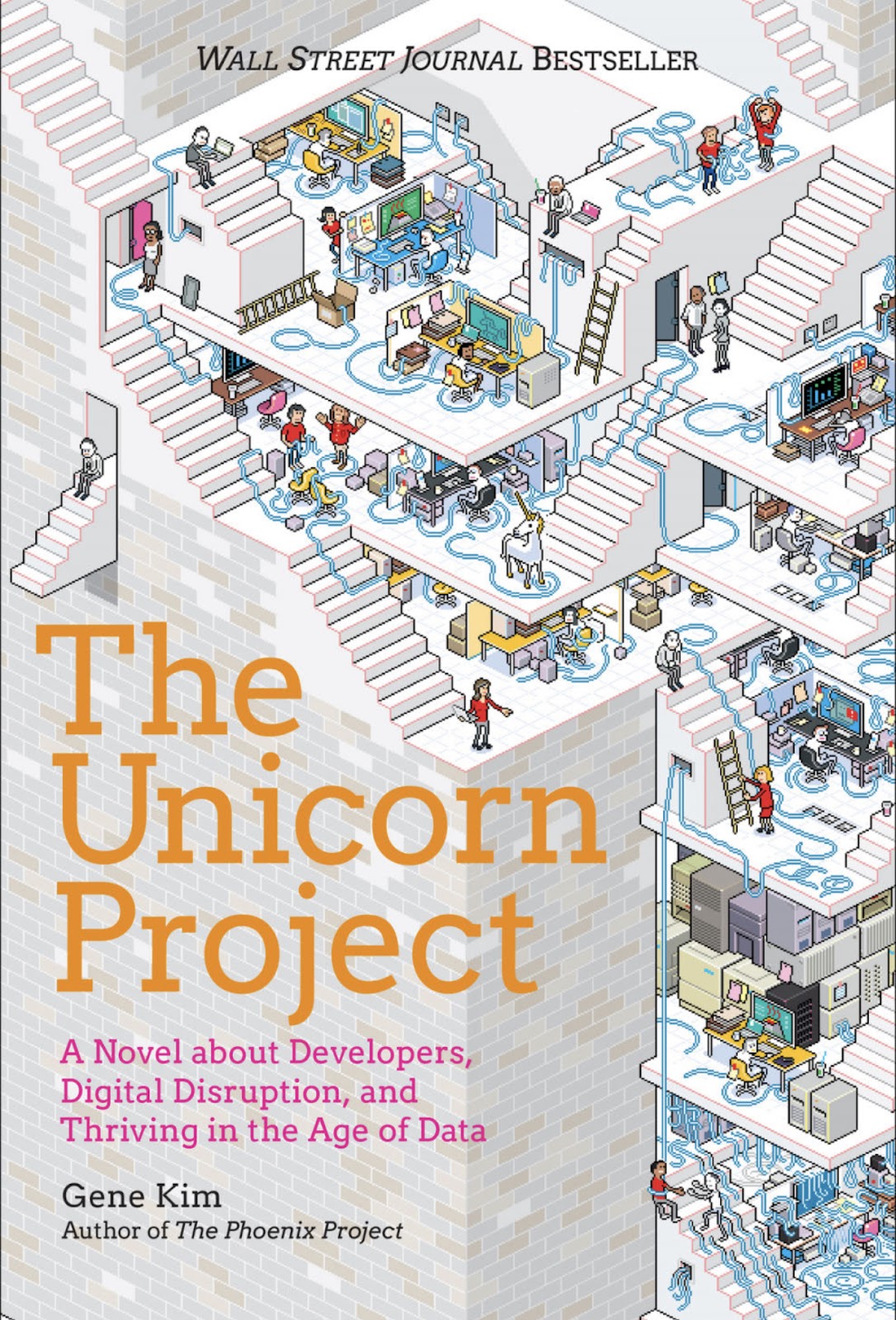
Author: Gene Kim
Year: November 2019
As in The Phoenix Project, Gene Kim uses a narrative style to show how you can overcome traditional bureaucracy and endless meetings to develop and deliver better solutions.
In The Unicorn Project, Maxine, a former Phoenix Project developer, learns to overcome legacy structures and red tape with another team using DevOps best practices.
As a DevOps professional, you can expect lessons in locality, simplicity, customer focus, and finding unabashed joy in your everyday work.
12. Effective DevOps: Building a Culture of Collaboration, Affinity, and Tooling at Scale
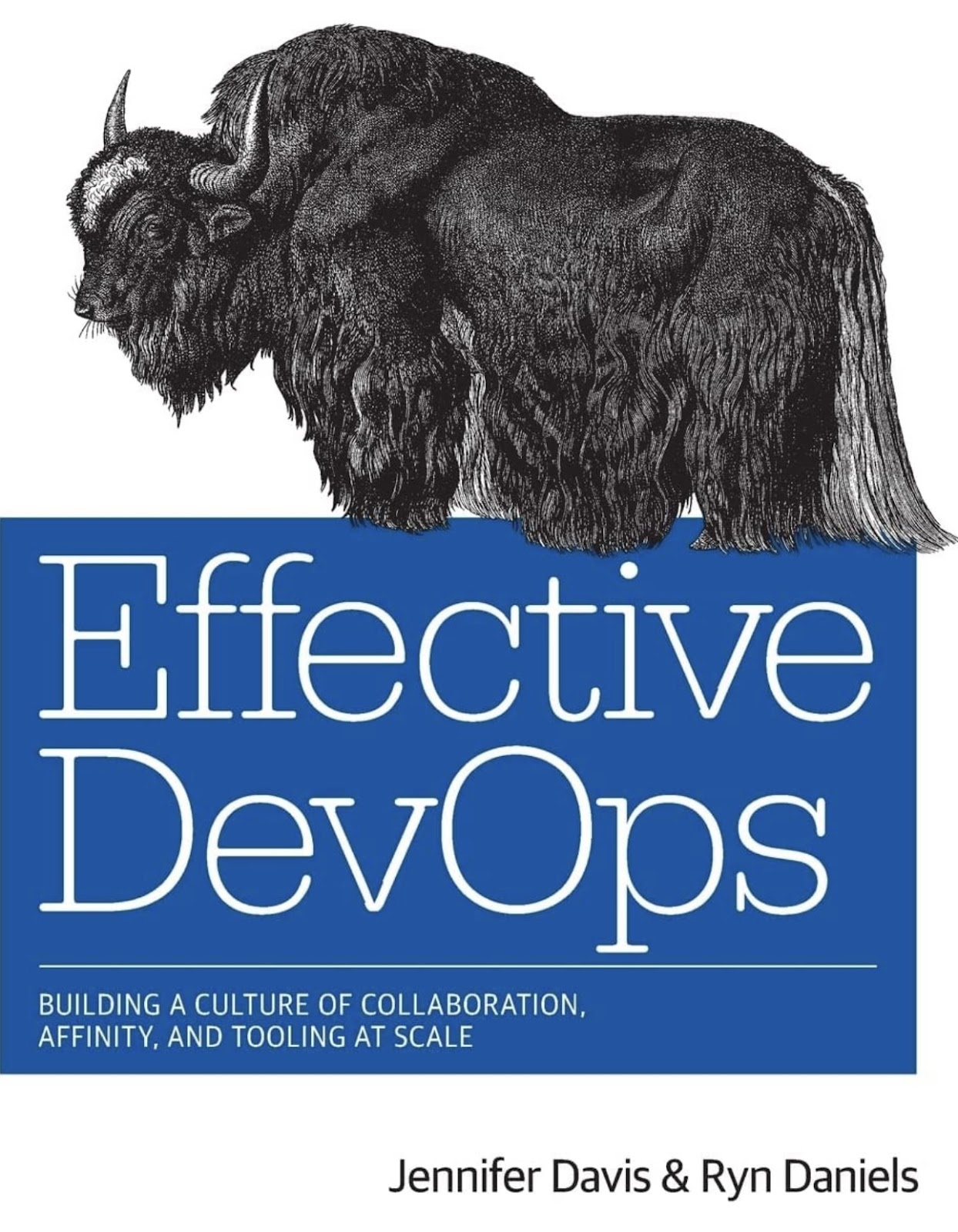
Author: Jennifer Davis
Year: July 2016
A prolific author and veteran operations engineer, Jennifer Davis debunks the myth that DevOps involves introducing many new tools and specialists.
Instead, she and contributor Ryan Daniels share several practical ways to improve collaboration between individuals and entire teams, repair misunderstandings between and among your people, use DevOps tooling efficiently, and leverage what works in one area across the organization.
The book explains four pillars of effective DevOps, several well-researched case studies, and how to troubleshoot common issues within your team.
13. The DevOps 2.1 Toolkit: Docker Swarm
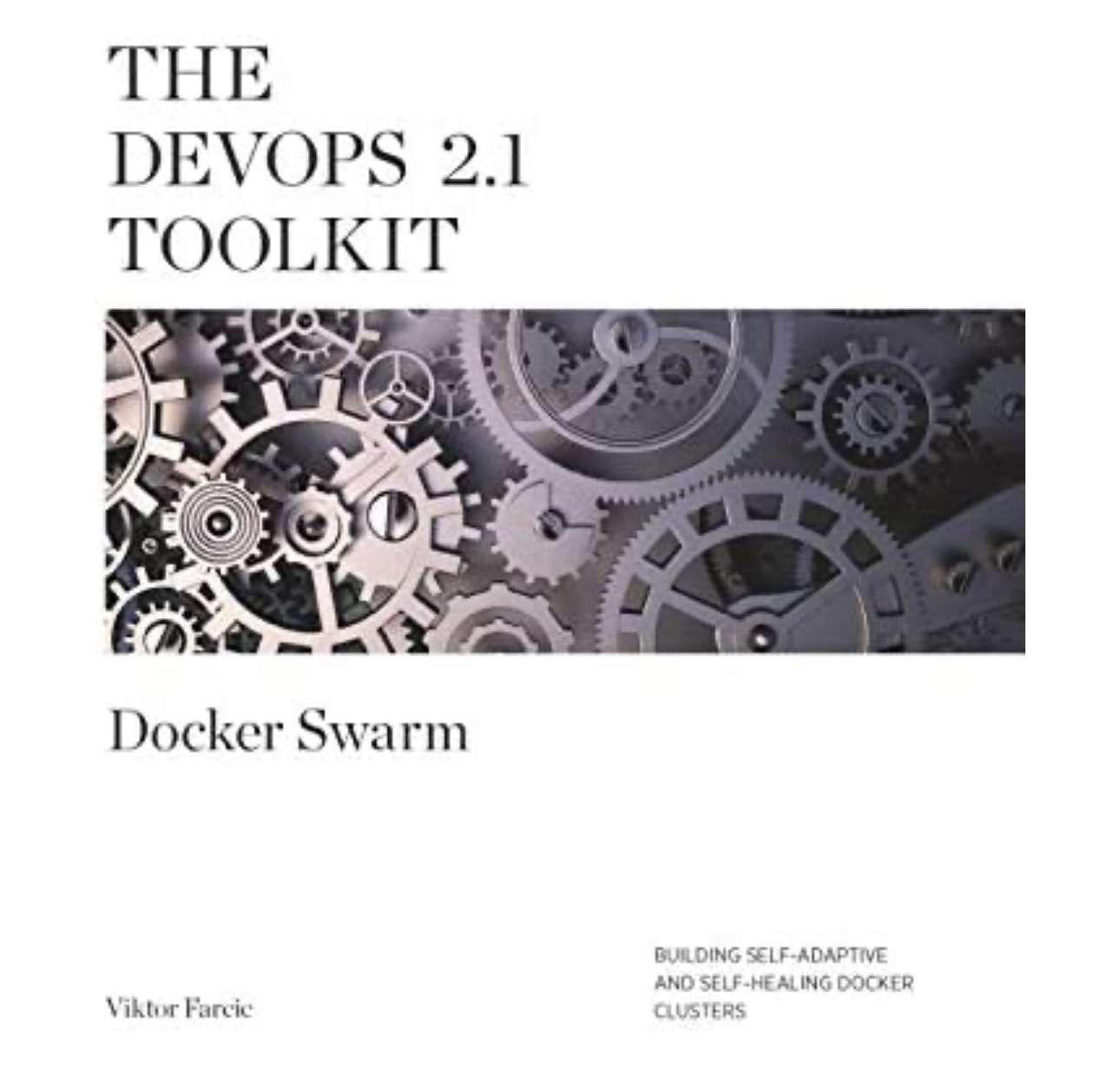
Author: Victor Farcic
Year: January 2017
The author taps from his experience as a Senior Consultant at CloudBees to teach the many aspects of developing, testing, deploying, managing, and monitoring services within Docker Swarm clusters.
Expect to learn the tools you need to run a cluster. Also, look forward to a quick yet detailed primer on running clusters locally on your laptop.
But the DevOps 2.1 Toolkit doesn’t just cover Docker Swarm, the DevOps 2.1 Toolkit also discusses Kubernetes (K8s), Docker, Registrator, Ansible, confd, Docker Compose, Ubuntu, Consul, and more.
14. Production-Ready Microservices: Building Standardized Systems Across an Engineering Organization
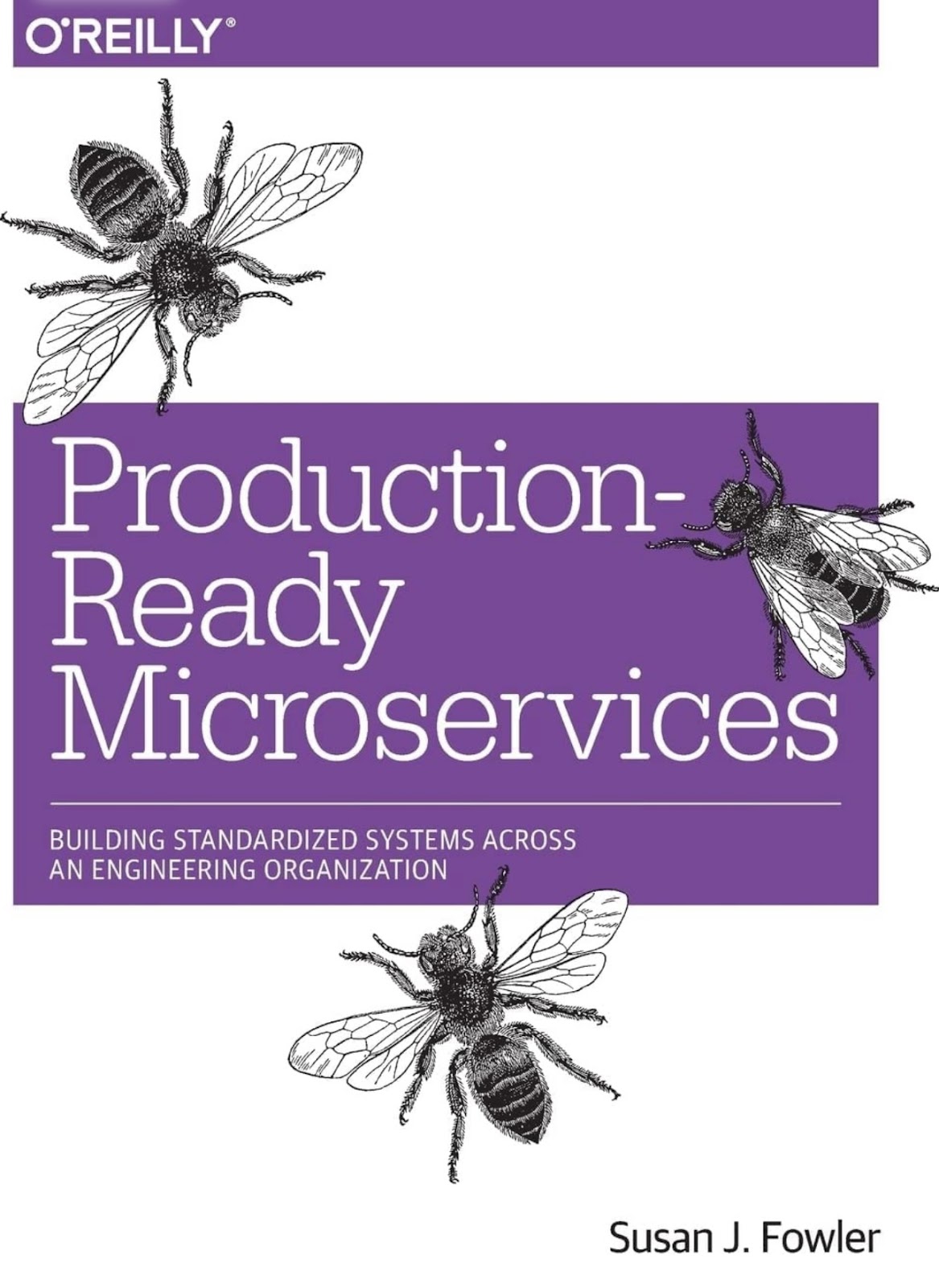
Author: Susan J. Fowler
Year: December 2016
Using her experience standardizing microservices at Uber, author Susan Fowler shares five standards to gauge the production-readiness status of your microservices initiative.
It is an in-depth read that guides you through designing, building, and deploying fault-tolerant and performant microservices. You will gain insights into catastrophe preparedness, technical debt, and driving microservices to fail in real time.
15. Practical DevOps: Harness the Power of DevOps to Boost Your Skill Set and Make Your Organization Perform Better
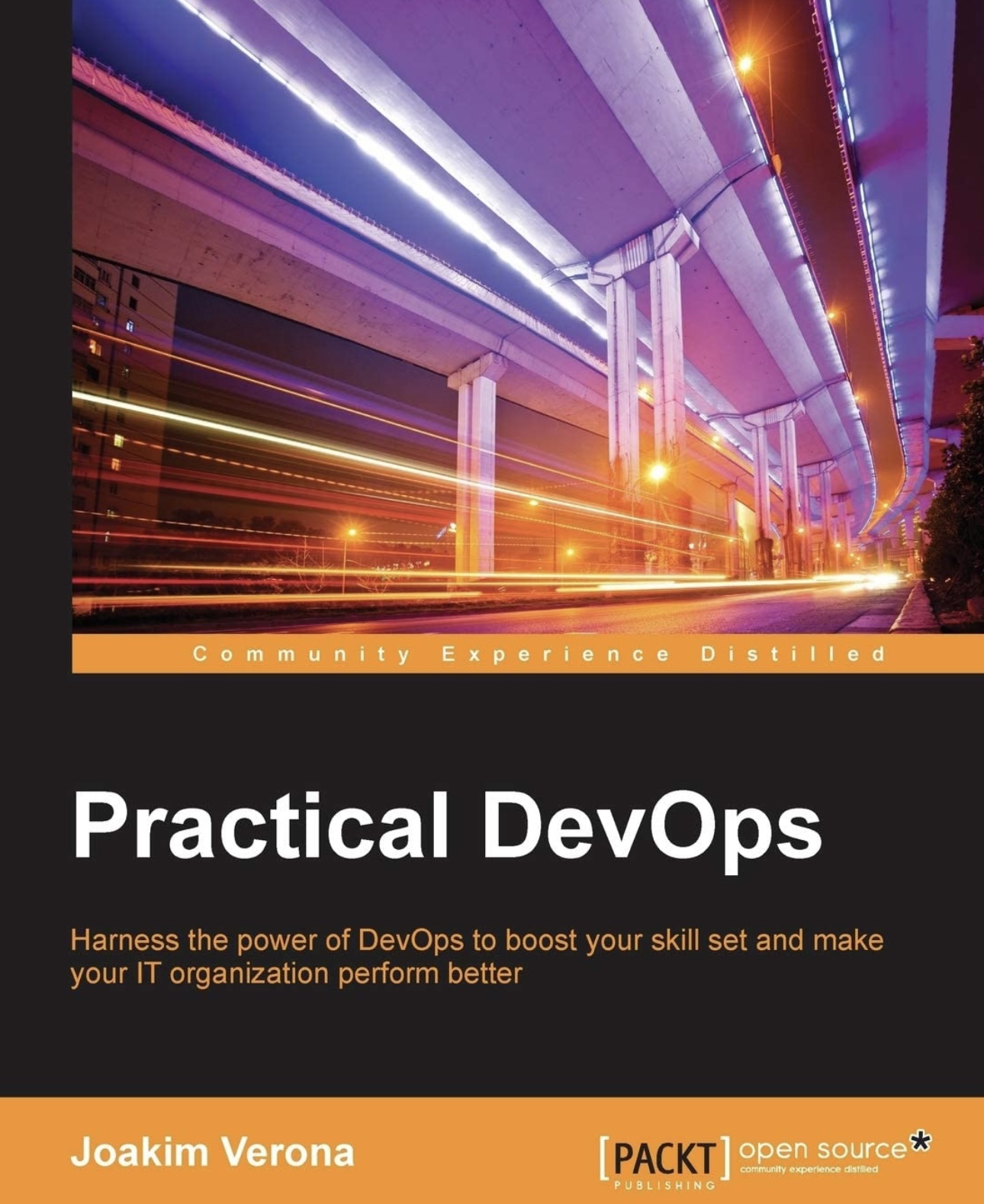
Author: Joakim Verona
Year: February 2016 (May 2018 for the 2nd Edition)
You’ll take a journey through the chapters of this book by creating a Java application and continually improving it.
The aim is to enable you to learn how to use essential DevOps tools like Jenkins, Puppet, Git, Gitlab, Jenkins Selenium, Chef, Vagrant, and others in your daily workflow.
Additionally, you will learn how to support the infrastructure that underpins all of this at work and how Continuous Integration and Continuous Delivery work together as part of the system.
16. Cloud Native DevOps with Kubernetes: Building, Deploying, and Scaling Modern Applications in the Cloud
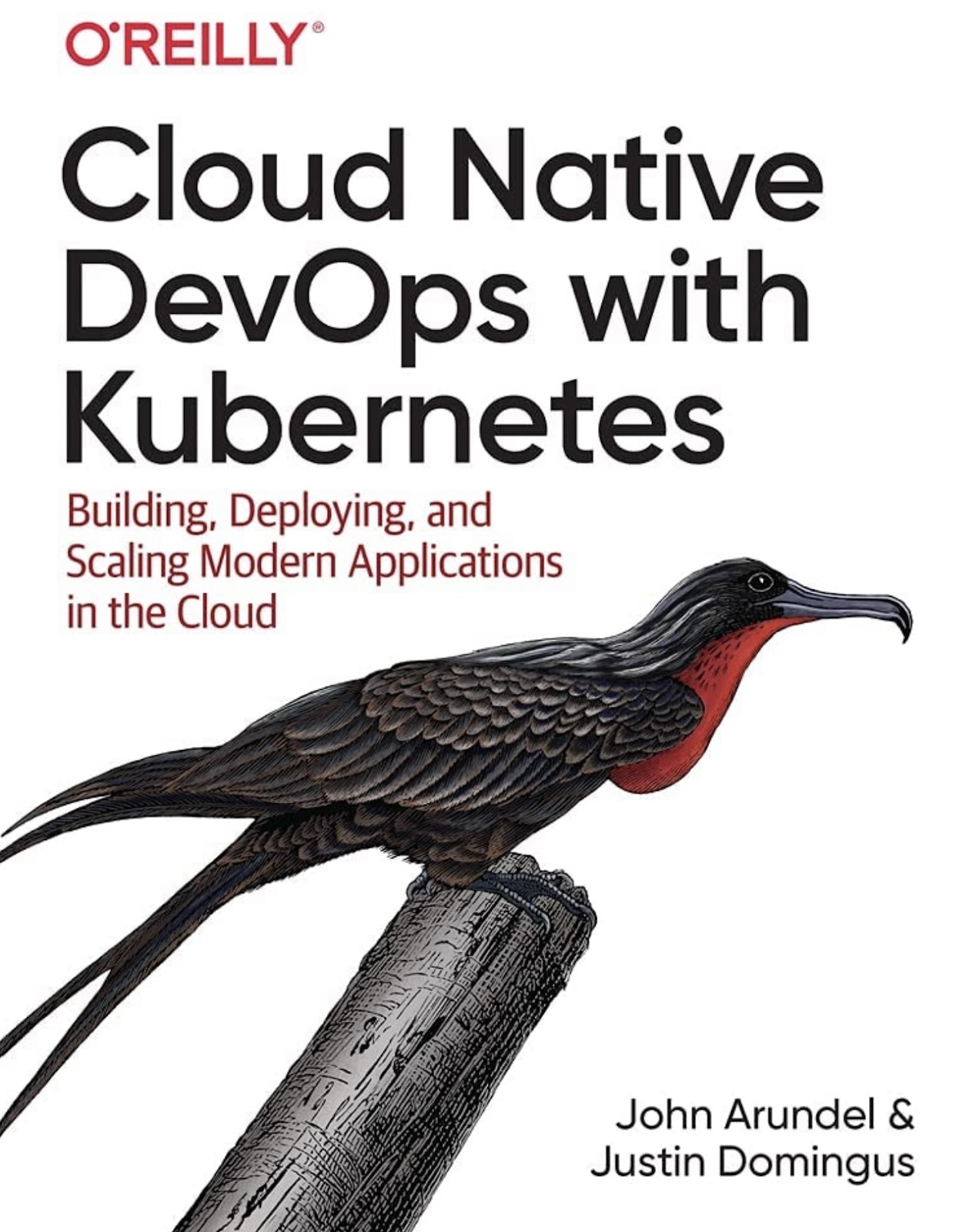
Author: John Arundel and Justin Domingus
Year: April 2019
This is an updated second edition, available with compliments of F5 NGINX. Read it to learn about the rapidly evolving Kubernetes environment and how to use it to solve everyday problems.
You’ll also learn to use tools that are commonly used in the software development industry.
This book walks you through a model containerized application running in K8s, from development to the CI/CD pipeline. You’ll walk away with models you can apply directly to your own use cases.
17. Building Microservices: Designing Fine-Grained Systems
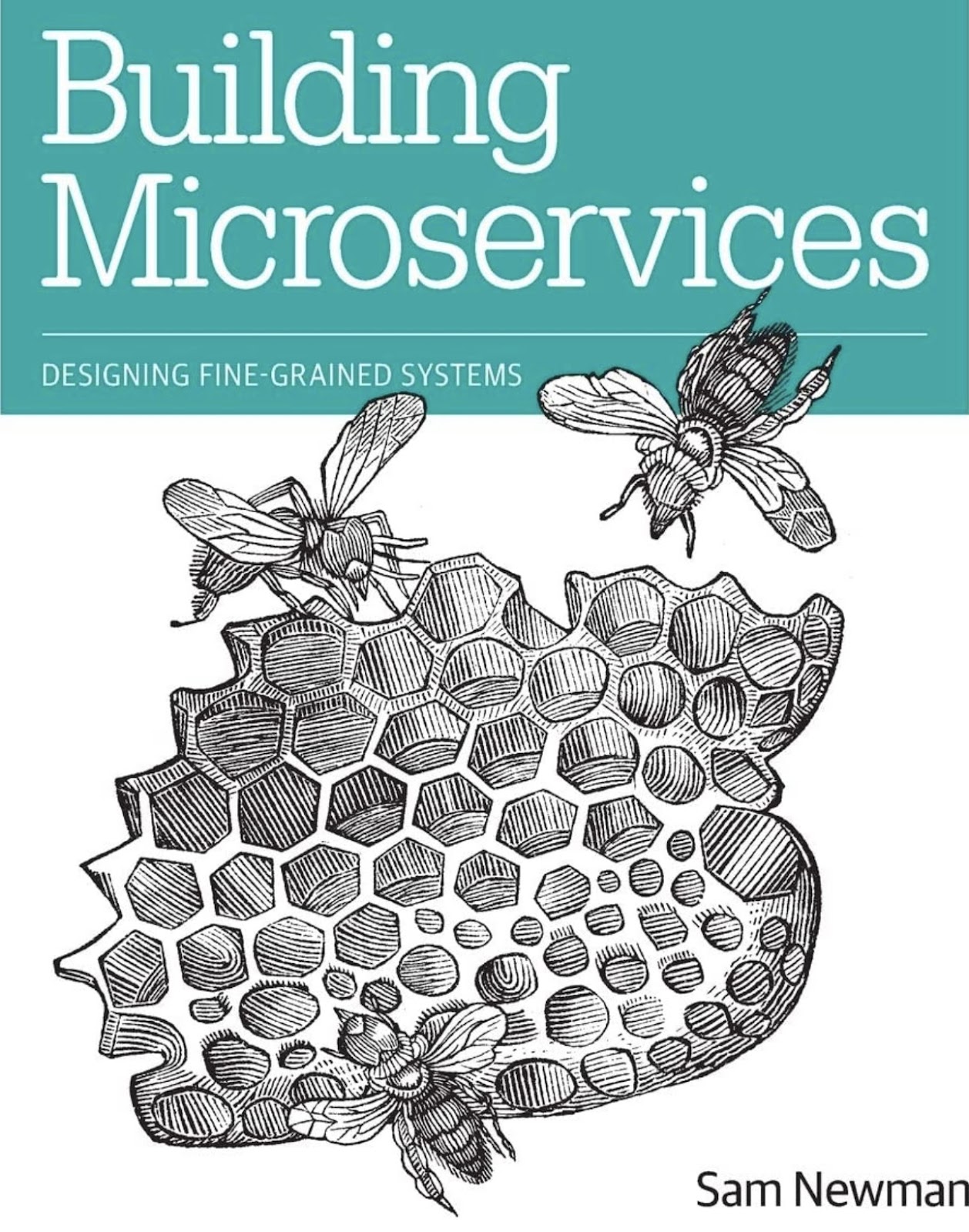
Author: Sam Newman
Year: March 2015
This is the third resource on microservices on this list of the best DevOps books,, and for good reason. Microservices and containers are and will continue to be big deals in today’s distributed, cloud-native organizations.
Author Sam Newman provides practical insights and many examples on designing, modeling, integrating, testing, deploying, and monitoring autonomous services. This includes managing microservices security using service-to-service and user-to-service models.
Books About DevOps Security
18. Securing DevOps: Security in the Cloud
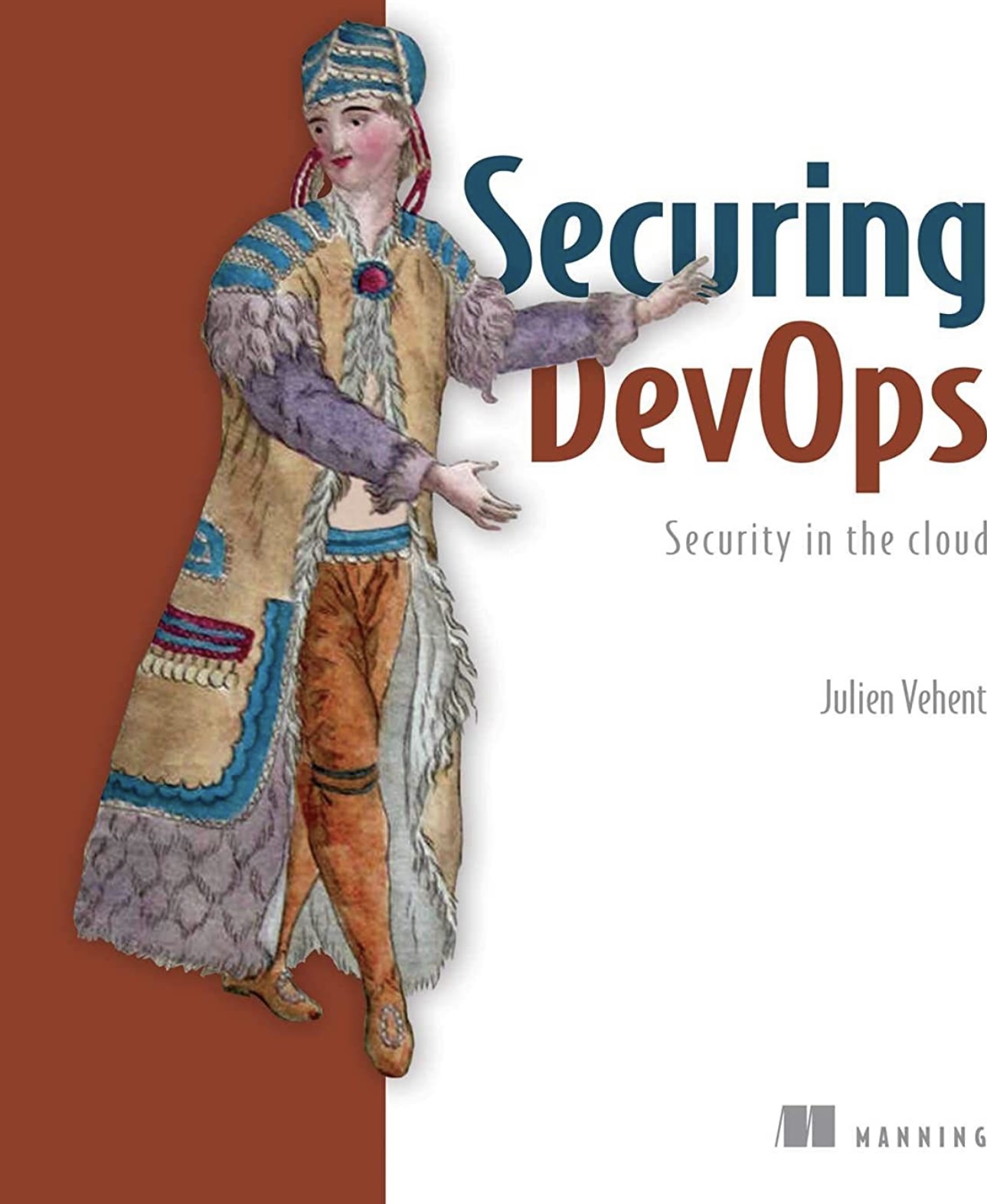
Author: Julien Vehent
Year: August 2018
Read Security DevOps if you seek a practical manual detailing how to build, mature, and continuously improve security throughout the DevOps lifecycle.
The book deploys case studies and shares examples of securing everything from the infrastructure to communications between your services, deterring fraud attempts, and securing operations at scale.
You’ll also learn how to capture logs, use unit testing for security, and respond to incidents to maintain safe applications.
Other top DevSecOps books you can read include Microservices Security in Action by Wajjakkara Kankanamge and Dan B. Johnson’s Secure by Design.
19. Building Secure and Reliable Systems: Best Practices for Designing, Implementing, and Maintaining Systems
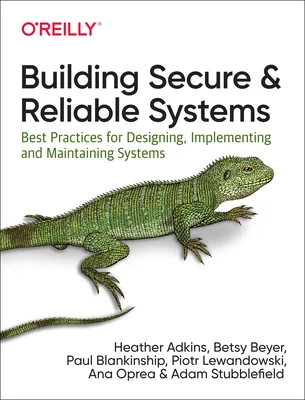
Authors: Heather Adkins, Betsy Beyer, Paul Blankinship, Piotr Lewandowski, Ana Oprea, Adam Stubblefield
Year: March 2020
Written by Google engineers, this book shares proven methods for designing secure, reliable systems. It focuses on building defenses, managing incidents, and fostering teamwork. You’ll learn practical strategies for system security, resilience, and scalability. These are essential for any DevOps or SRE professional who wants to avoid failures and breaches while maintaining high performance.
Site Reliability Engineering Books
20. Site Reliability Engineering: How Google Runs Production Systems
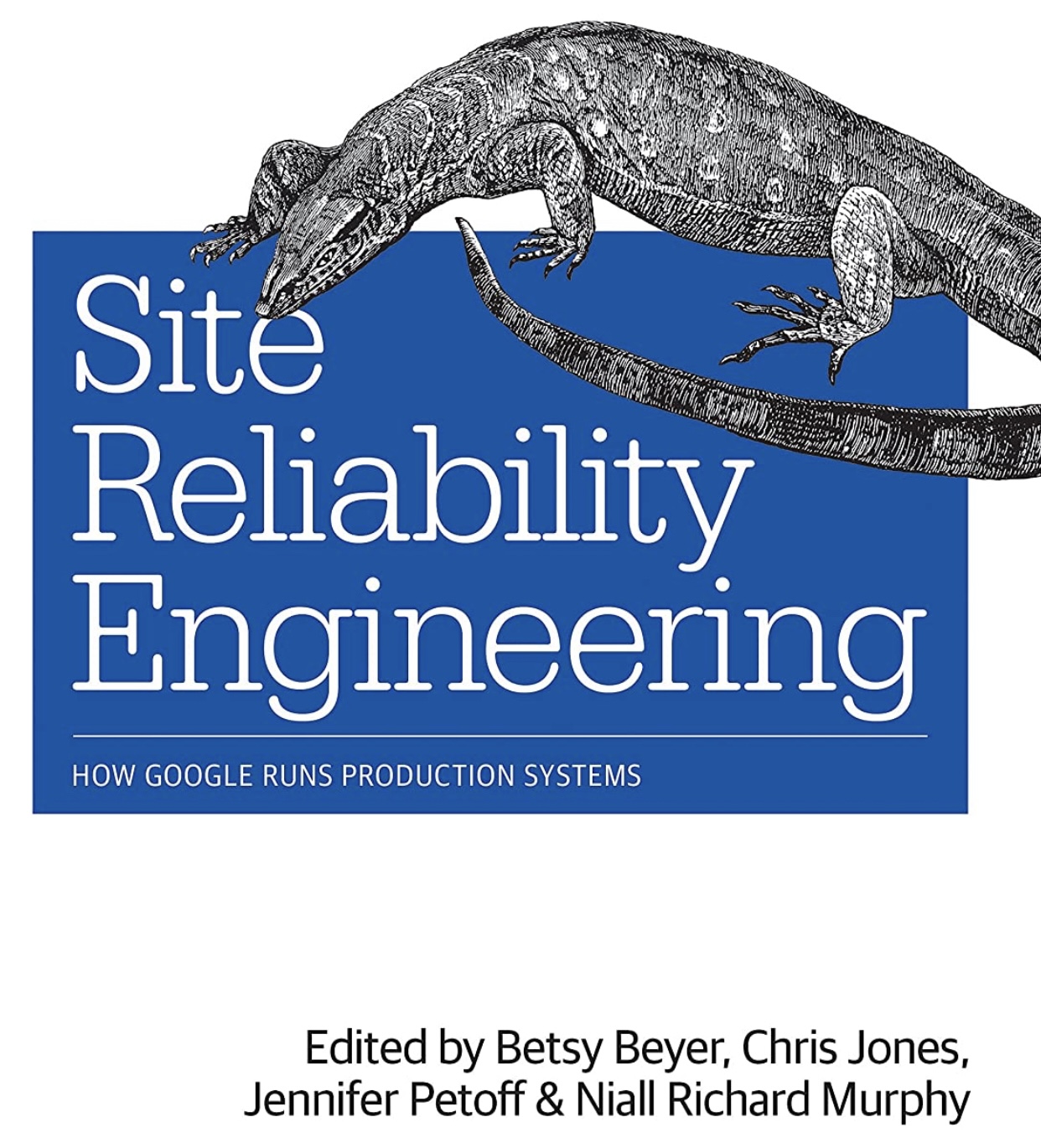
Editors: Betsy Beyer, Chris Jones, Jeniffer Petoff, and Niall Murphy
Year: May 2016
Google engineers pioneered Site Reliability Engineering, a concept essential to maintaining high availability and optimal performance and meeting customer Service Level Agreements (SLAs).
In this guide, you will find a collection of essays explaining how the behemoth develops large-scale, reliable, and efficient systems so you can apply them to your own operations.
The Site Reliability Workbook (August 2018), which further explains SRE from the perspective of Google engineers, is also available.
21. Seeking SRE: Conversations About Running Production Systems at Scale
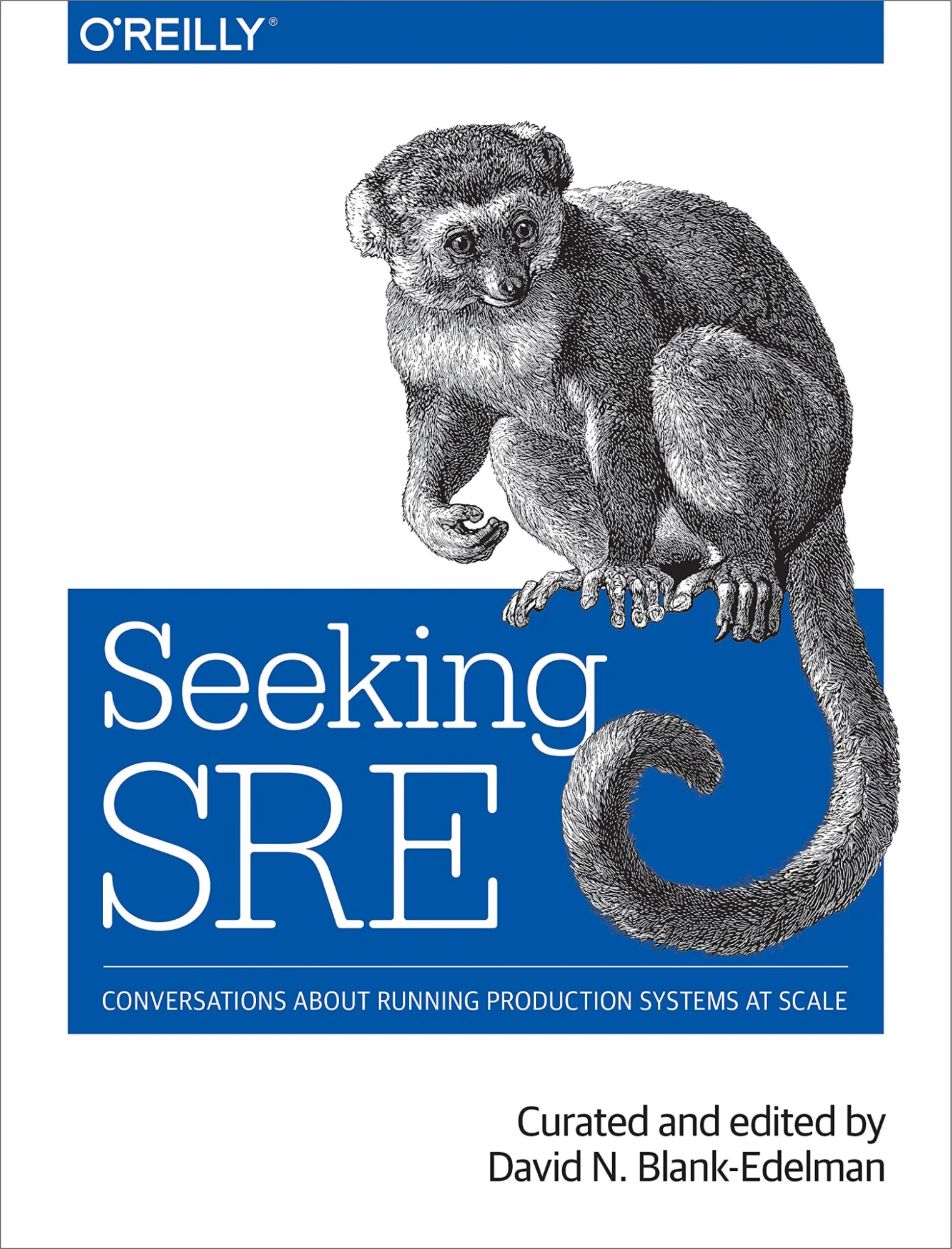
Author: David N. Blank-Edelman
Year: August 2018
This collection of essays explores diverse perspectives on implementing SRE across various organizations. It delves into the relationship between SRE and DevOps emerging specialties and best practices. It also touches on the human aspects of maintaining reliable systems at scale.
22. Next Gen DevOps: A Manager’s Guide to DevOps and SRE
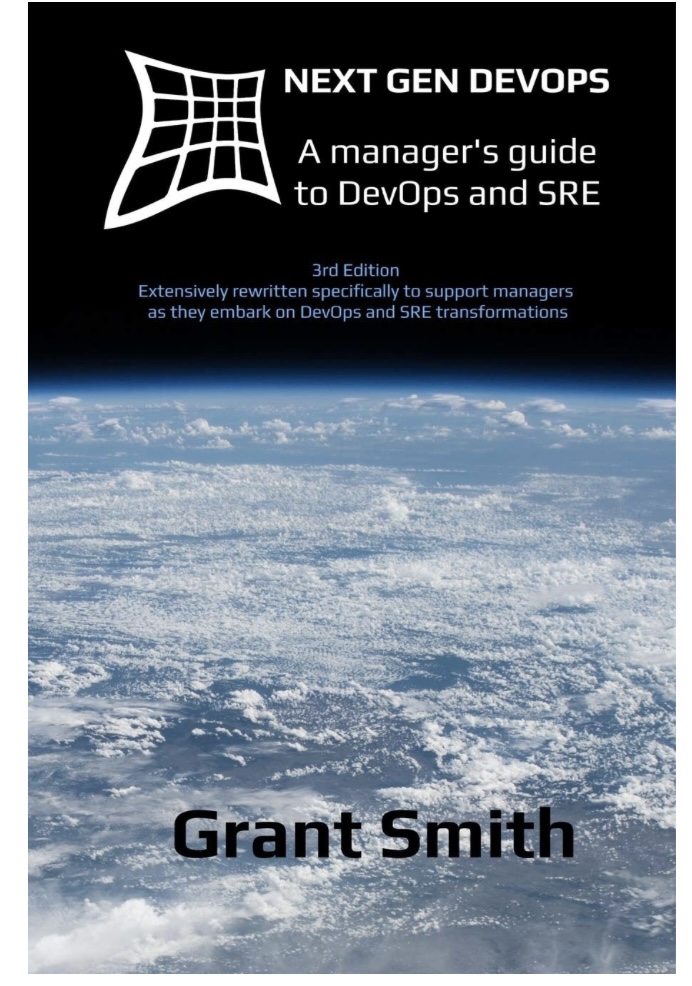
Author: Grant Smith
Year: September 2019
This book provides a handy guide for IT leaders to learn how to seamlessly combine two modern IT concepts: DevOps and Site Reliability Engineering (SRE).
The author shares real-life lessons from working in multiple technology enterprises and startups. You’ll gain insights into delivering robust online services by leveraging data-driven development, Infrastructure-as-Code (IaC), and automated testing.
23. Infrastructure-as-Code: Dynamic Systems for the Cloud Age
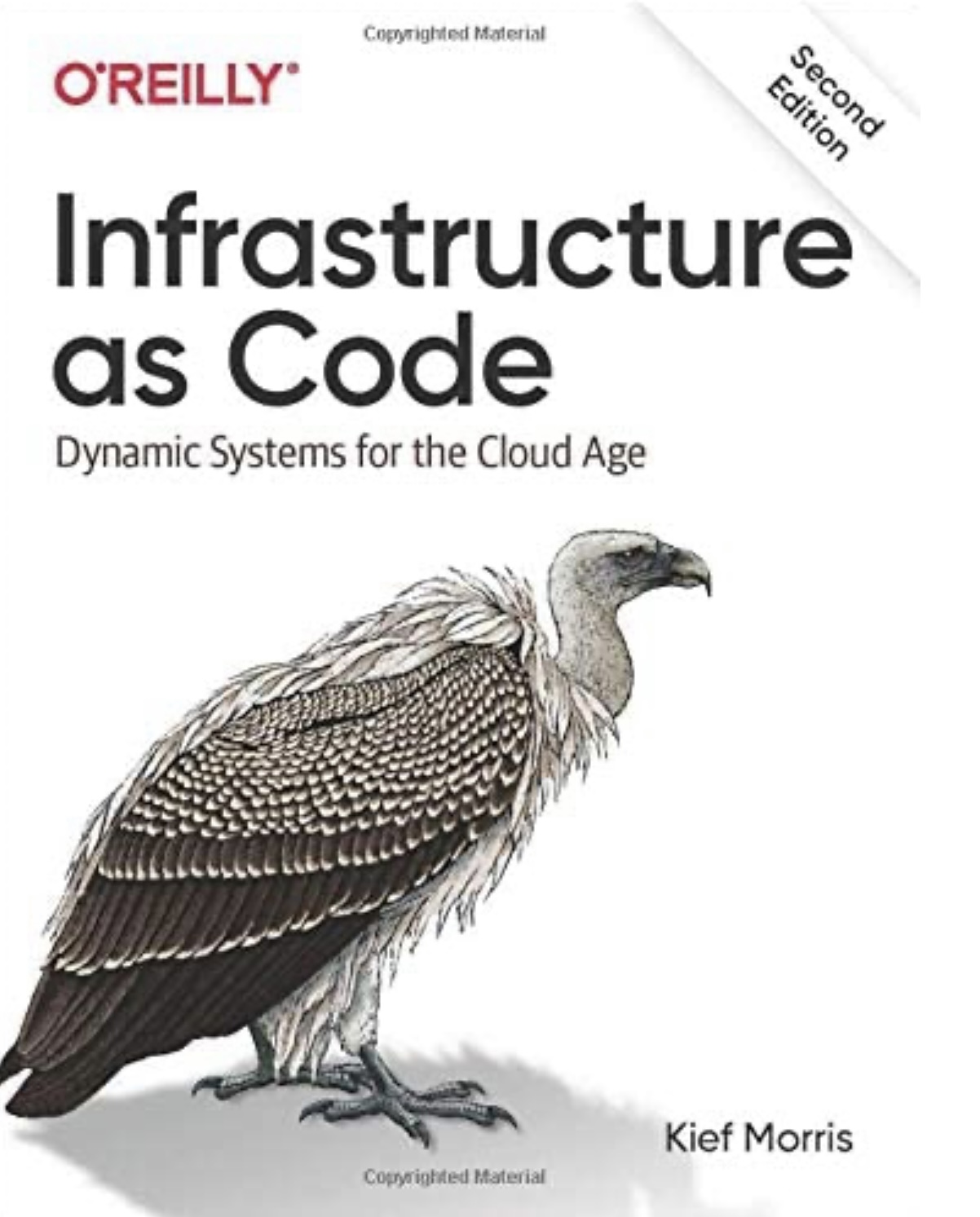
Author: Kief Morris
Year: January 2021
This is a follow-up to Infrastructure-as-Code: Building Servers in the Cloud, published in 2016. In the second edition, the author elaborates on working with infrastructure stacks, servers, platforms, large systems, and distributed teams.
Look forward to learning how to define everything as code and leverage automation to accelerate engineering innovation.
24. Cloud-Native Patterns: Designing Change-Tolerant Software
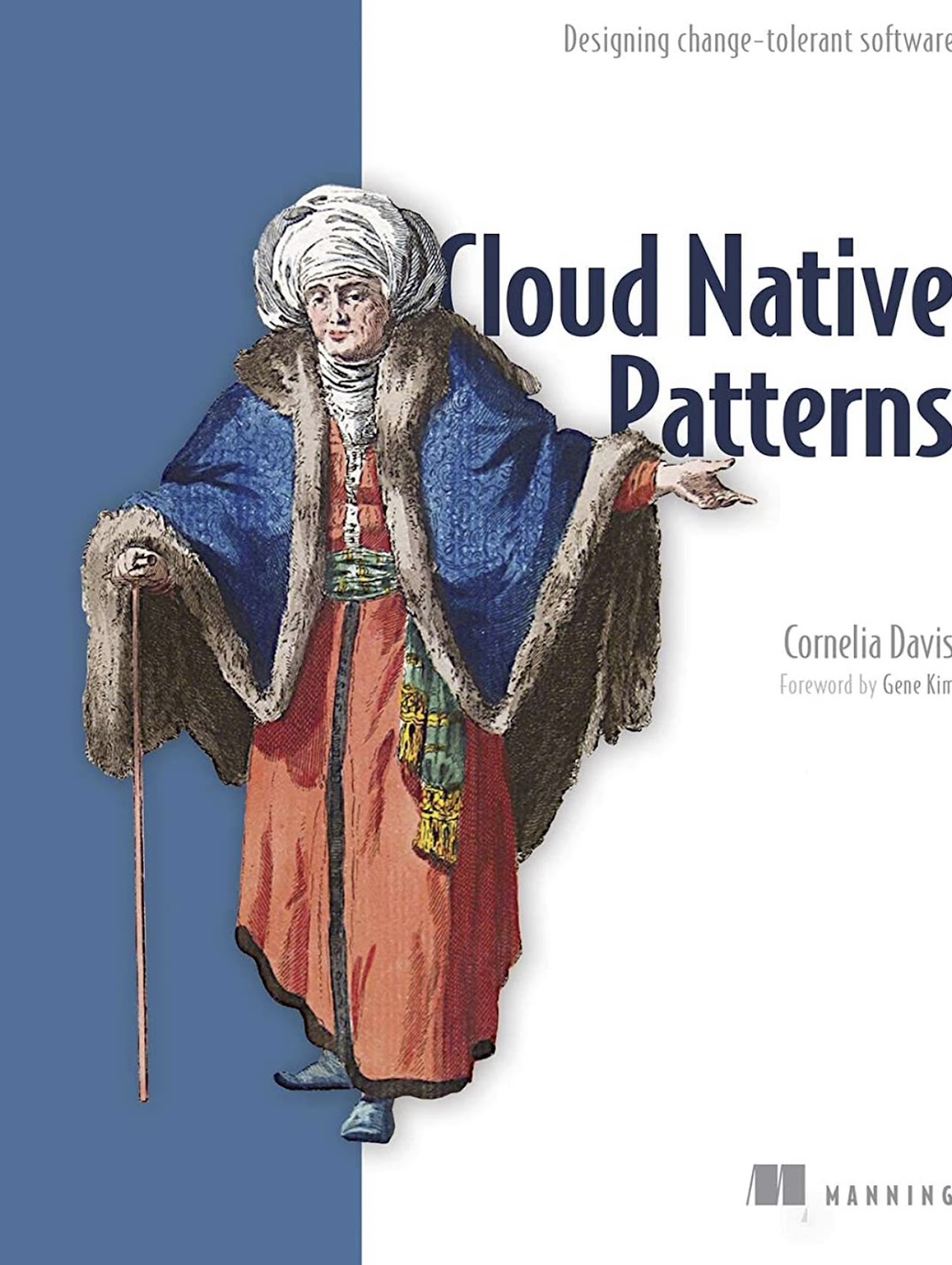
Author: Cornelia Davis
Year: May 2019
Cornelia is the Vice President of Technology at Pivotal Software and has over 25 years of experience in cloud development.
This book teaches you how to build and maintain cloud-native systems that can handle massive amounts of traffic and treasure troves of data without breaking or costing you a fortune.
Books On CI/CD
25. Continuous Delivery: Reliable Software Releases Through Build, Test, and Deployment Automation
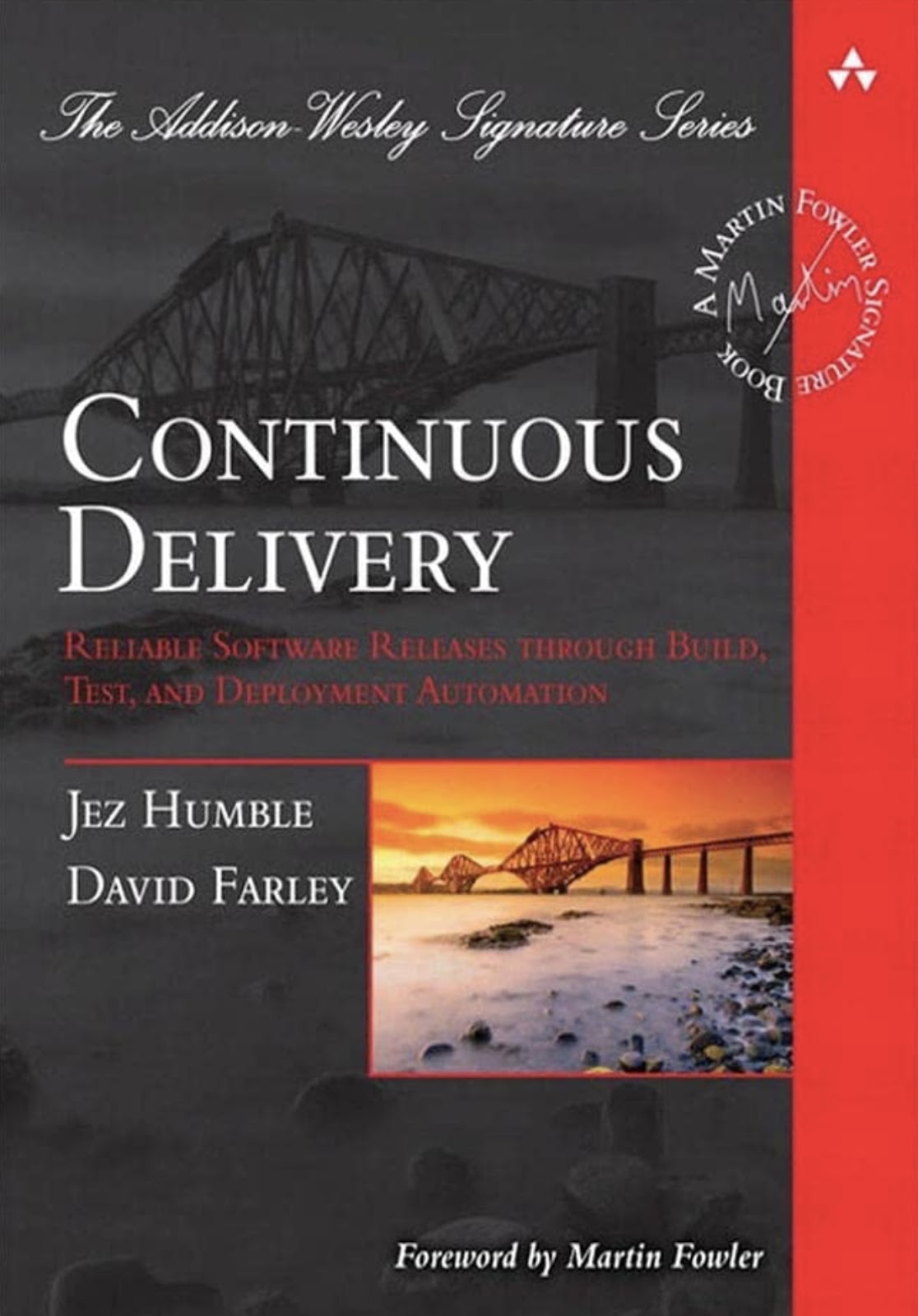
Authors: Jez Humble and David Farley
Year: July 2010
This book goes straight to the heart of the DevOps process; the Deployment and Delivery pipeline. Jez, an SRE engineer at Google and an instructor at UC Berkeley, alongside David, a veteran developer, also covers the ecosystem you require to support optimal CI/CD in daily life — infrastructure management, virtualization, and automated testing.
26. Accelerate: The Science of Lean Software and DevOps
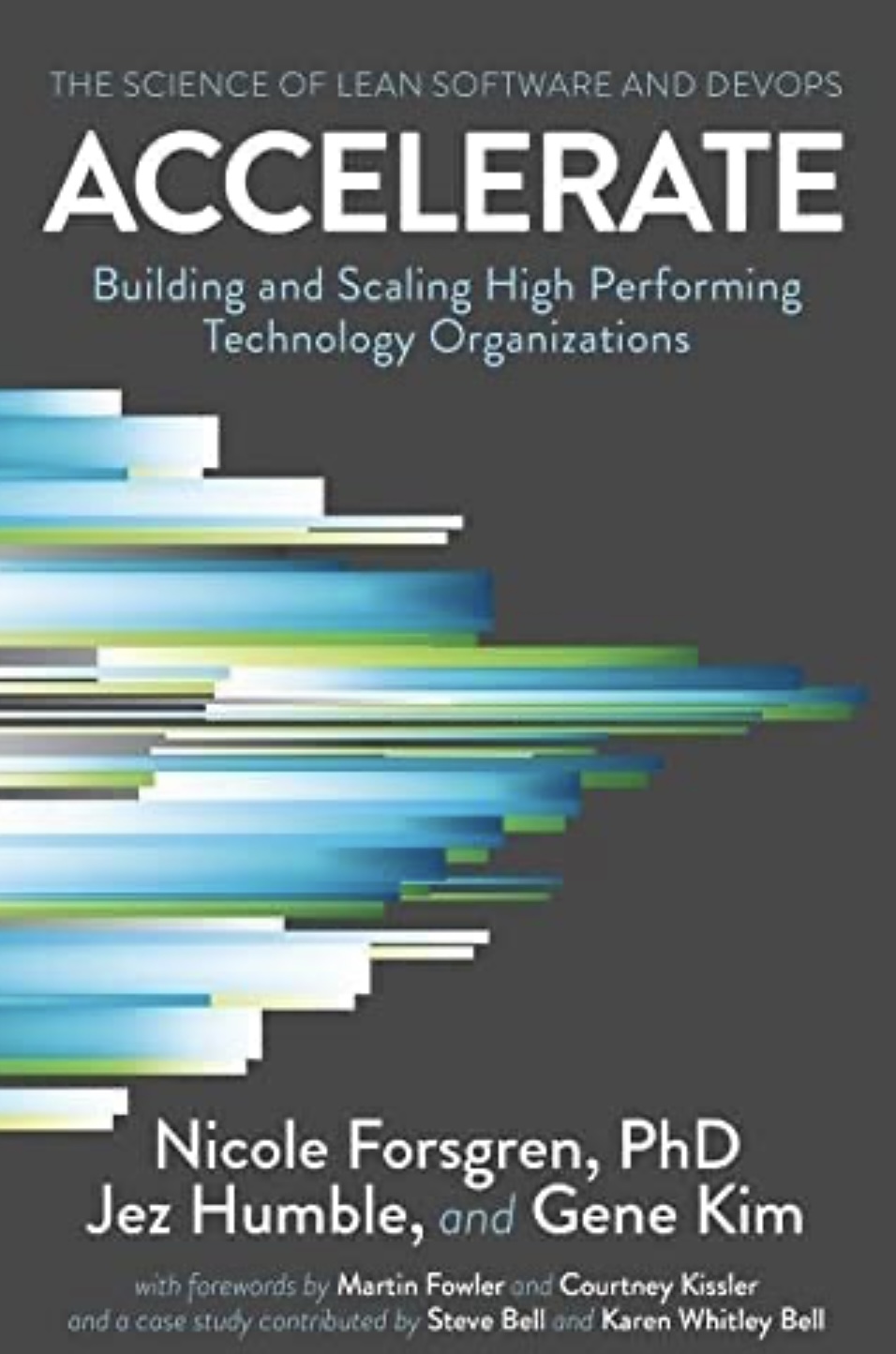
Authors: Dr. Nicole Forsgren, Jez Humble, and Gene Kim
Year: March 2018
A trio of DevOps’ brightest influencers presents four years of groundbreaking research, linking software delivery effectiveness to business value.
This book provides access to the findings of these statistical methods (including several State of DevOps reports) and instructions on conducting them yourself so you can apply them in your organization.
DevOps Books About Cloud System Administration
27. Cloud FinOps: Collaborative, Real-Time Cloud Value Decision Making
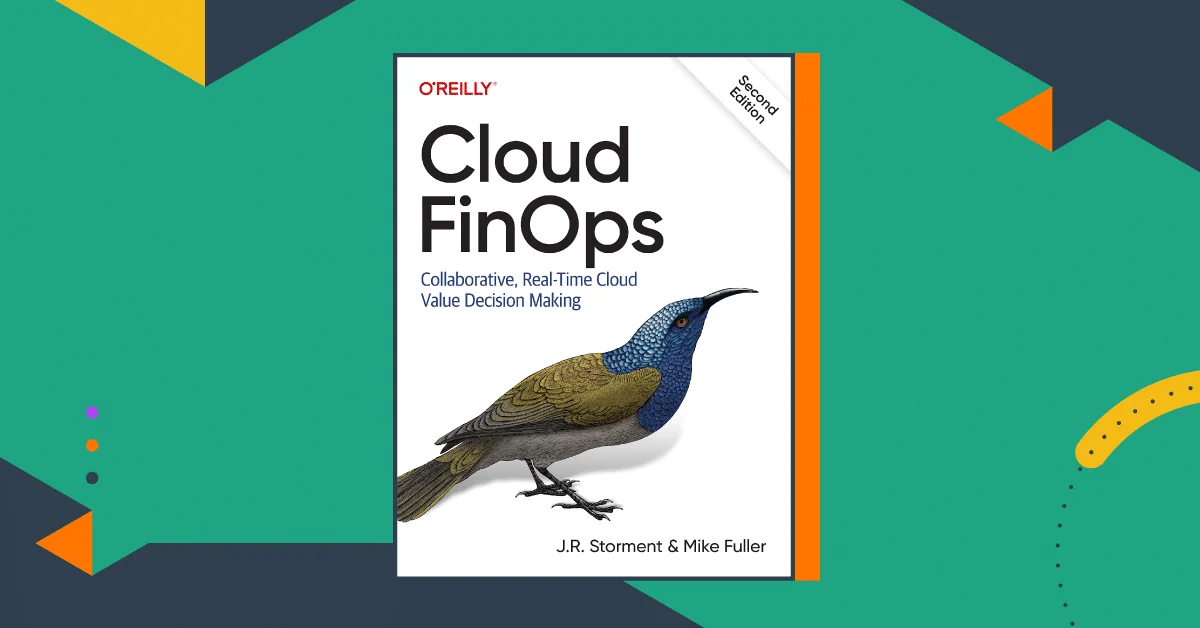
Authors: J.R. Storment, Mike Fuller
Year: January 2023
This book introduces FinOps, a practice that brings financial accountability to cloud spending. It offers strategies for building a FinOps culture, enabling engineering and finance teams to collaborate effectively. Key topics include cost allocation, forecasting, and automation.
This book provides a guide to the DNA of a highly functional cloud FinOps culture and teaches:
- How to understand and forecast your cloud spending
- How to empower engineering and finance to work together
- Cost allocation strategies to create accountability for cloud and container spend
- When and how to implement automation of repetitive cost tasks
28. The Practice of Cloud System Administration: Designing and Operating Large Distributed Systems, Volume 2
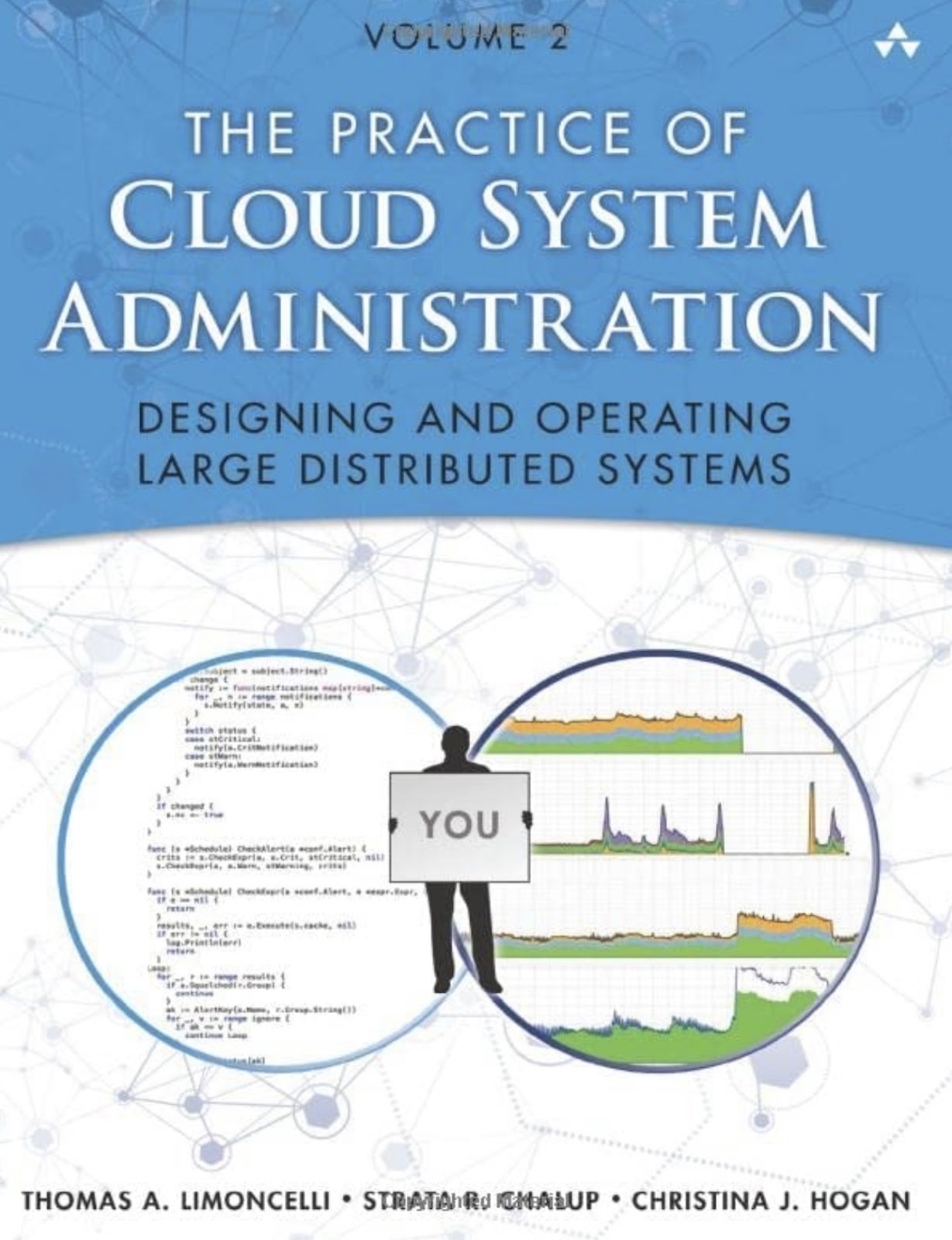
Authors: Thomas Limoncelli, Strate Chalup, and Christina Hogan
Year: September 2014
This practical guide to cloud system administration is for more than just operations engineers. Unlike many books that focus on either design or operations, this book provides clear, concise, yet detailed instructions on both in a single, complete handbook.
Case studies from companies like Google, Etsy, Twitter, Amazon, and Netflix are also included to help you visualize how these concepts work in practice.
In the second edition, The Practice of System and Network Administration (November 2016), the authors explore optimizing updates and managing change.
29. Time Management for System Administrators: Stop Working Late and Start Working Smart
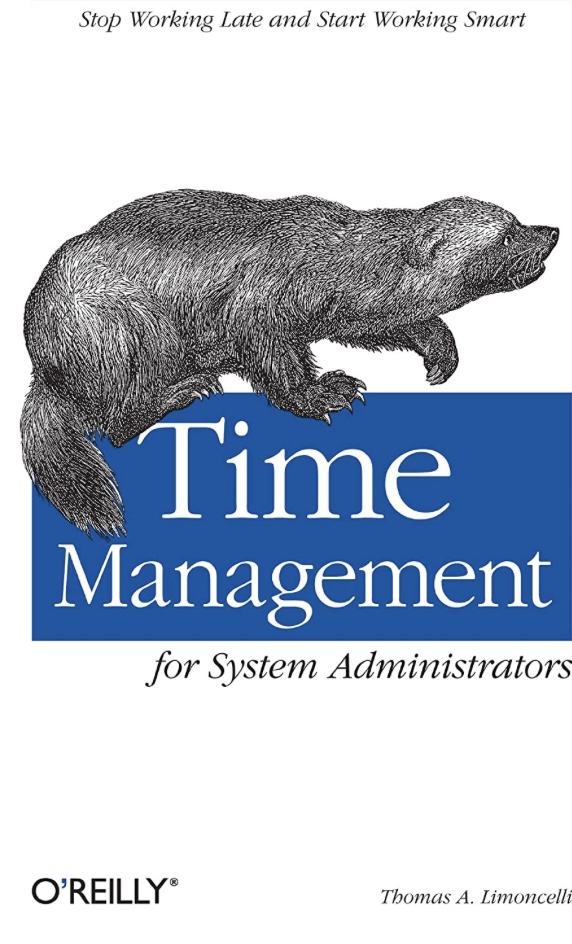
Author: Thomas Limoncelli
Year: December 2005
The nature of a system administrator’s job requires you to take on many different tasks at once.
You need a time management system that ensures you don’t constantly put out fires when you have competing deadlines, concurrent priorities, and emerging issues.
The guide provides an evergreen system that developers, operations, and managers can use in a DevOps culture to ensure their plans proceed productively.
30. The State of Cloud Cost Intelligence Report

Author: CloudZero Team
Year: 2024
For those of you who treat cost as a first-class metric, we have one more resource to help you improve your DevOps approach.
We surveyed over 1,000 engineering and finance professionals about the state of their cloud cost spending, awareness of cost drivers, and how they optimize cloud costs. What we found was startling; you can read all about it here.
Here’s one last thing.
Make Your DevOps Initiative Cost-Effective With CloudZero
Engineers and finance professionals need to speak the same language. Although engineers are often the first to notice technical anomalies, they rarely understand how those impact your bottom line and competitiveness since finance makes all the financial decisions.
If you want to improve cost awareness among your DevOps engineers and shift cost decisions left, CloudZero can help.
As an example, CloudZero’s real-time cost anomaly detection combs through your cloud services, detects abnormal cost patterns, and alerts teams or individuals via Slack, email, or your favorite incident response tool so they can prevent overspending.
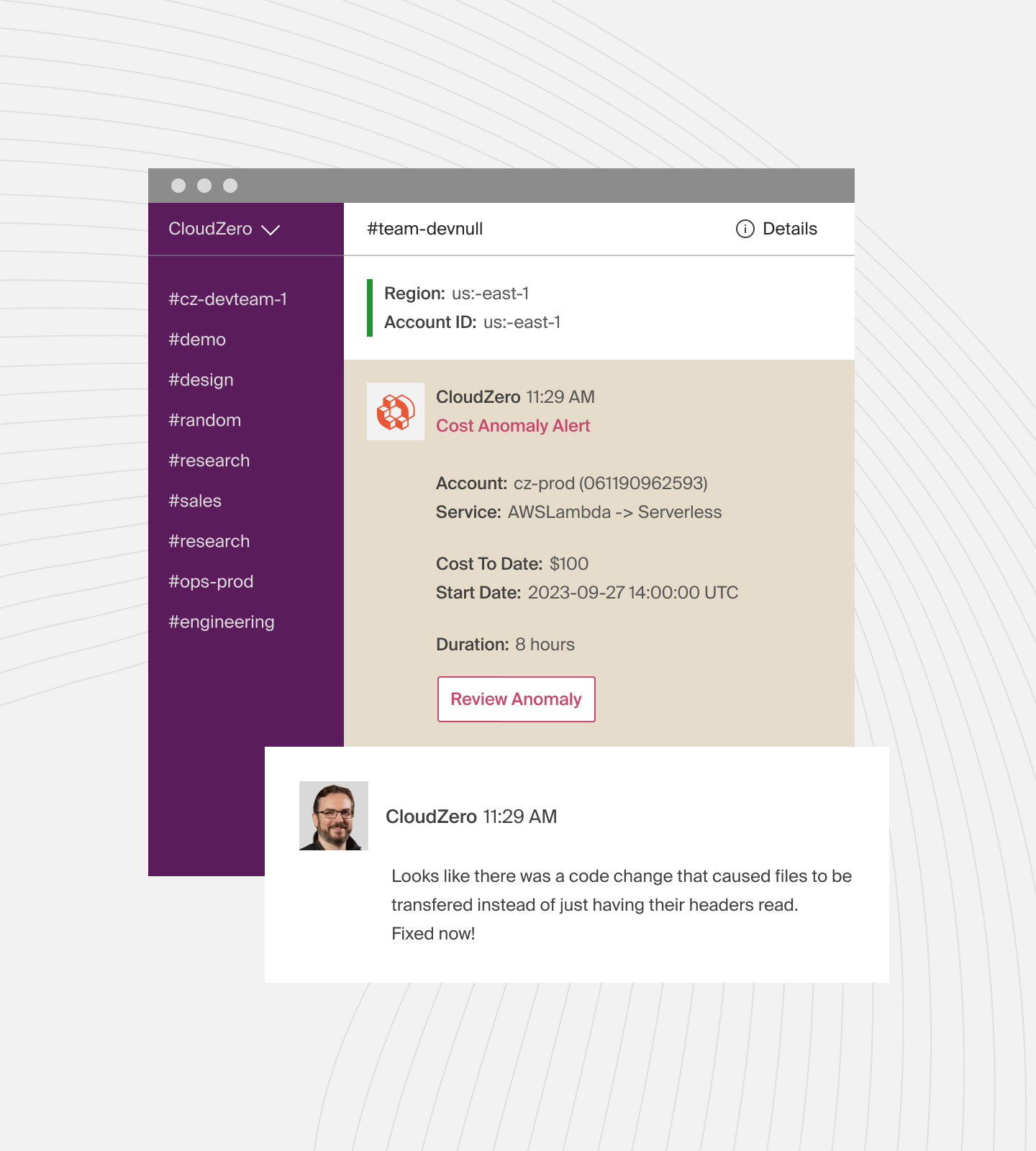
CloudZero also aggregates costs from AWS, Google Cloud, Azure, Kubernetes, Snowflake, MonjgoDB, New Relic, Databricks, etc. It then leverages a unique code-driven approach to granulate your costs down to the hour and present cost per customer, environment, software feature, project, team, and more.
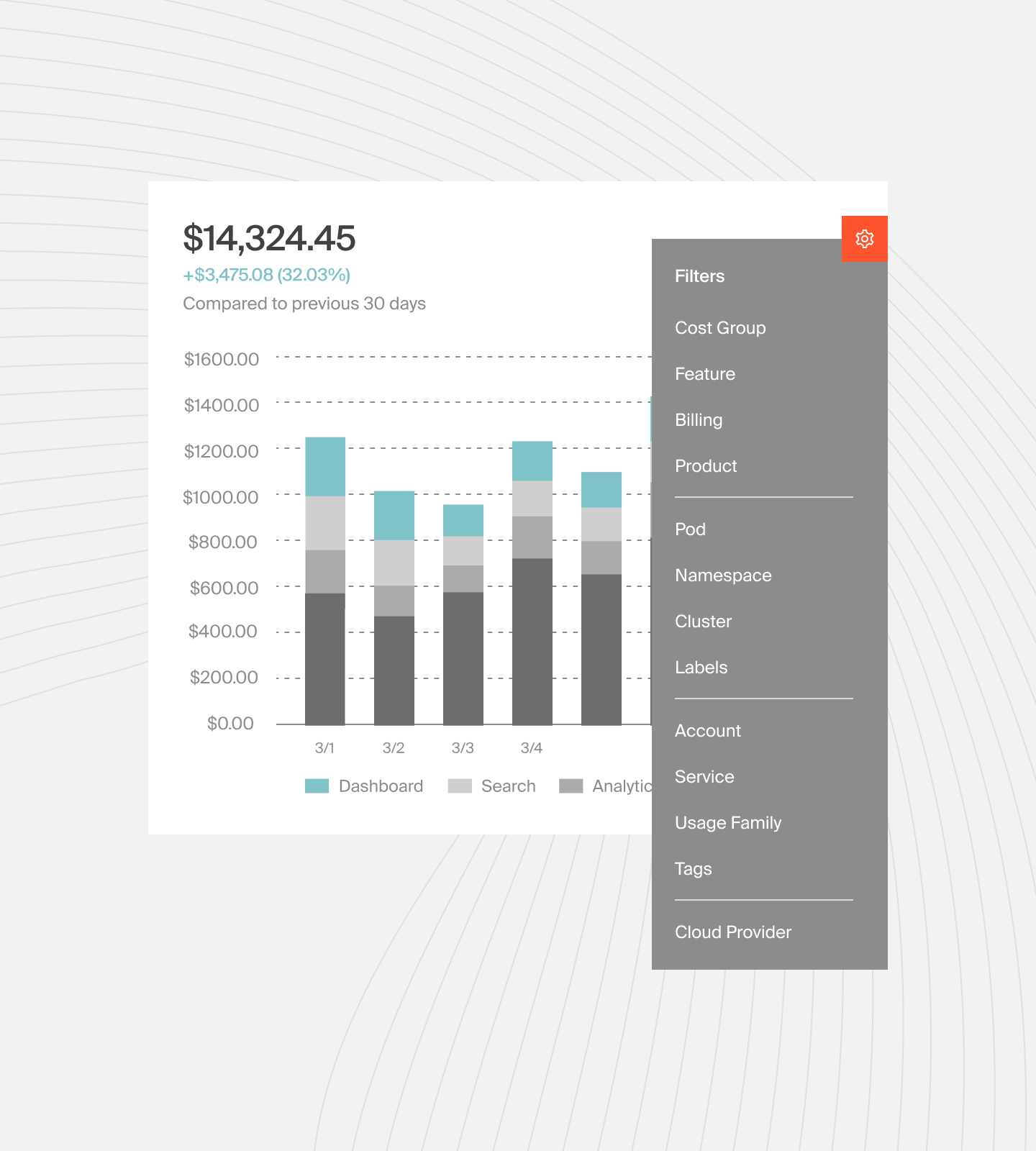
Meaning, CloudZero empowers you with the intel you need to understand how your people, products, and processes drive your cloud spend. That way, you can tell exactly what to do next to cut, reduce, and optimize your costs.
